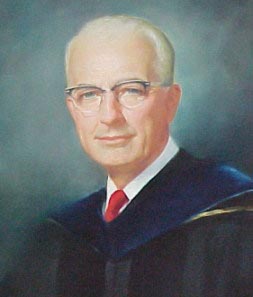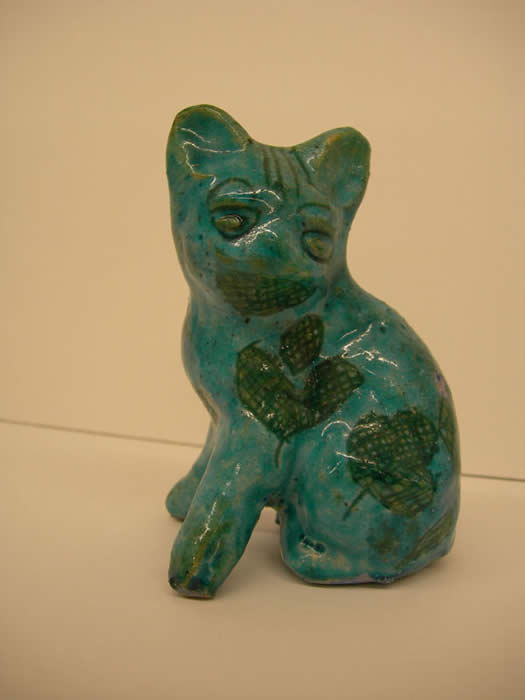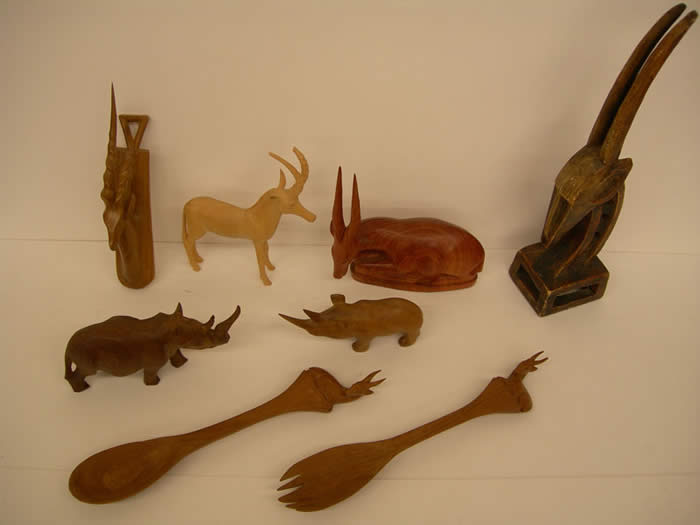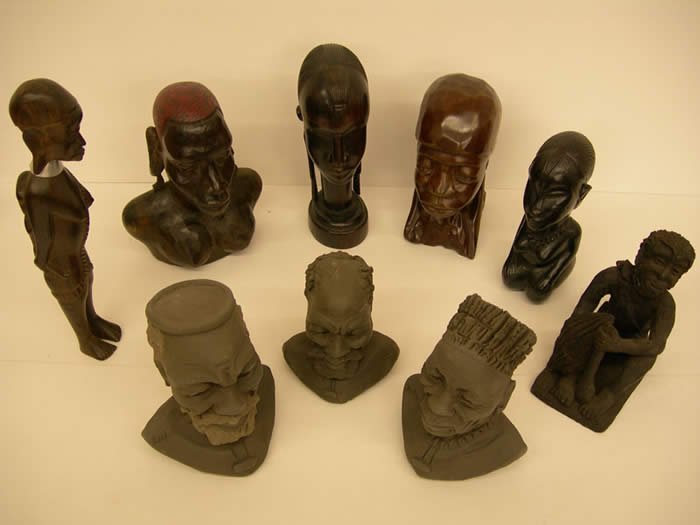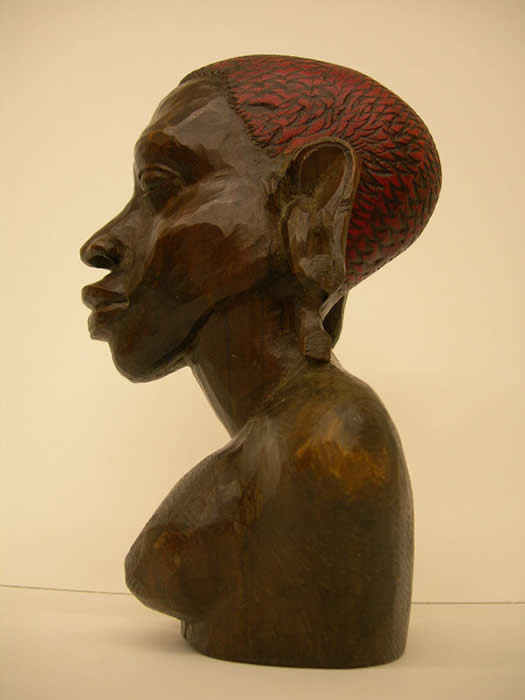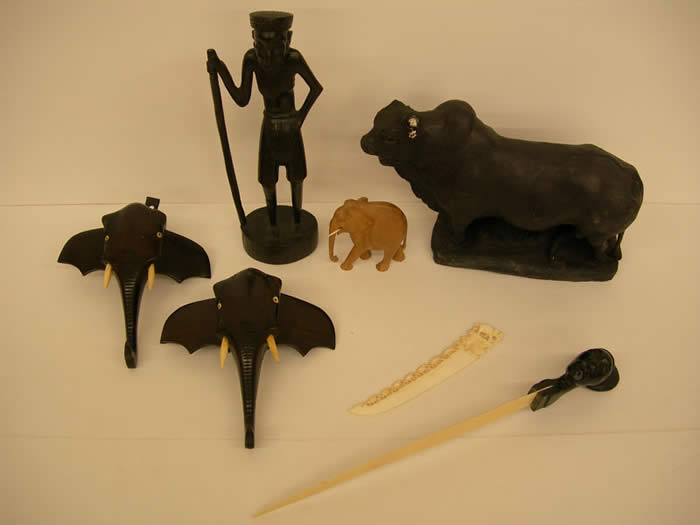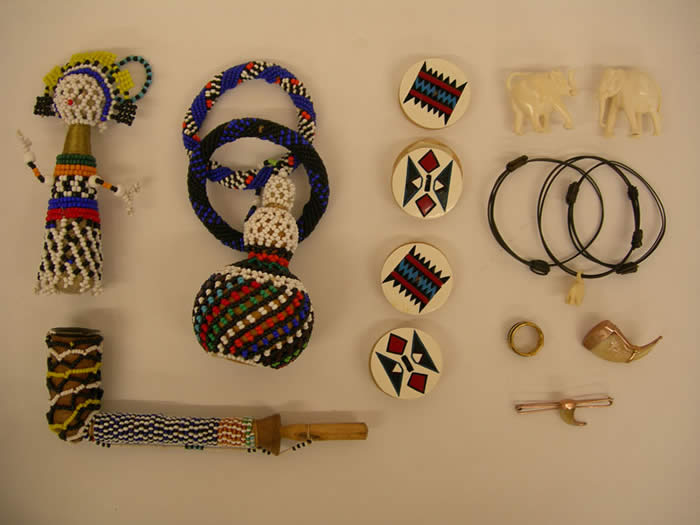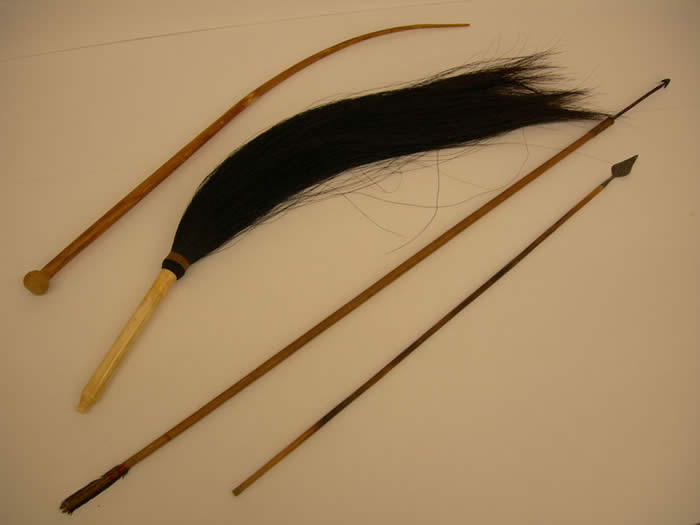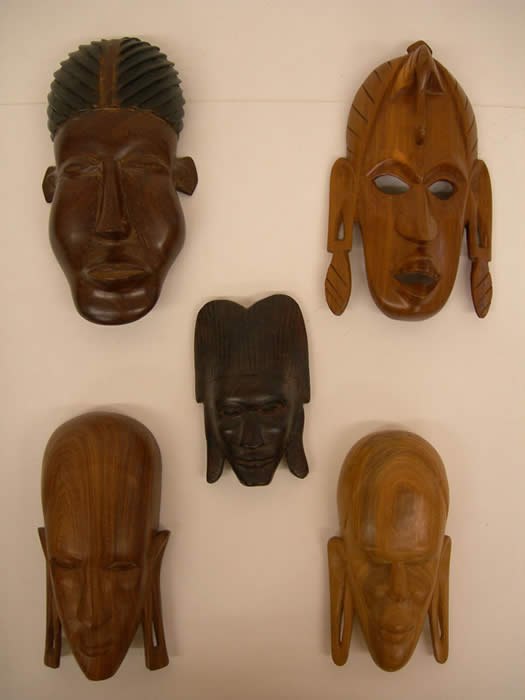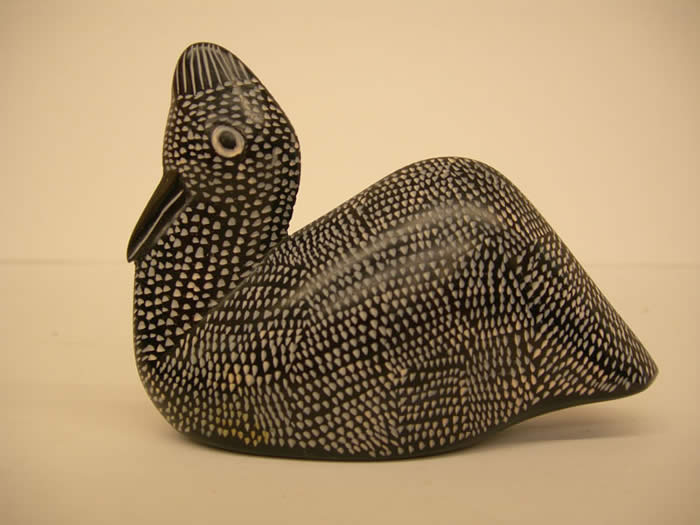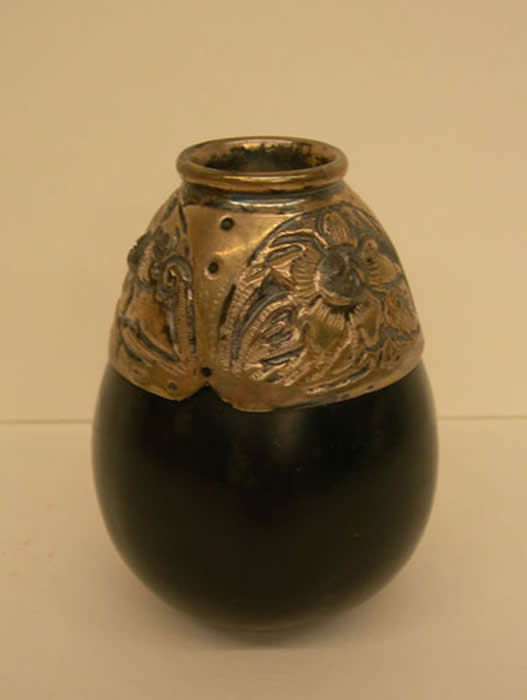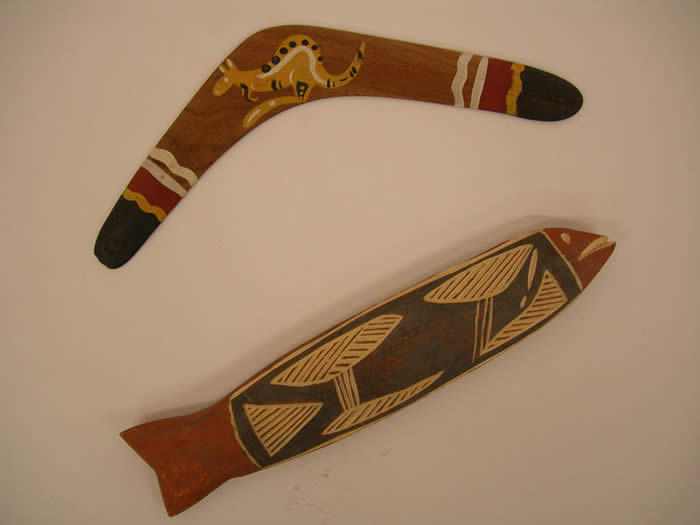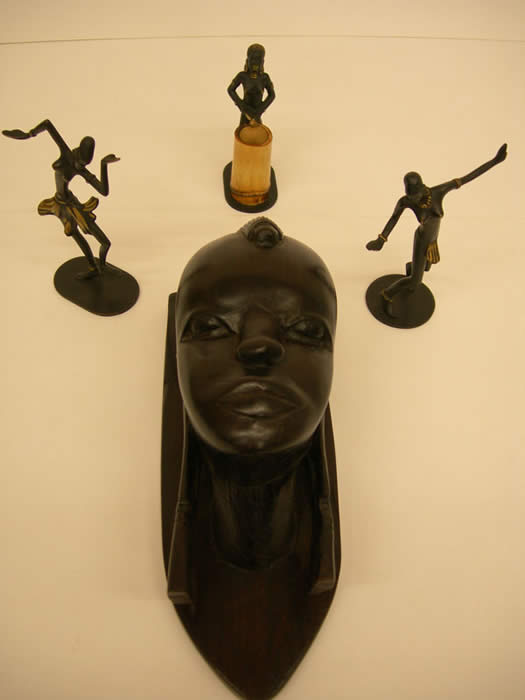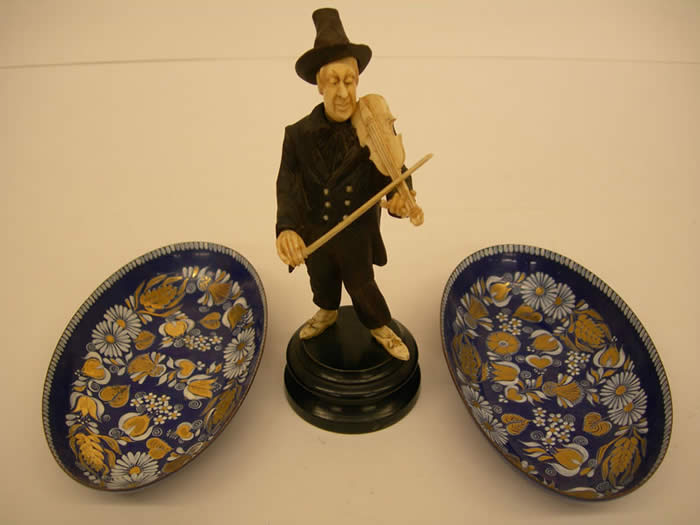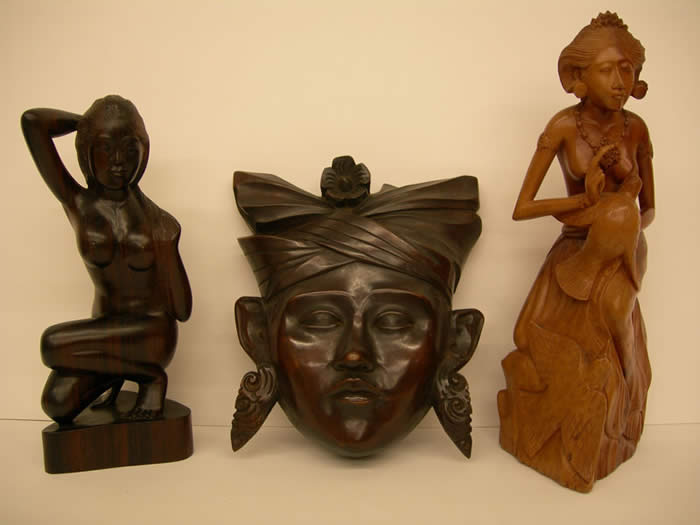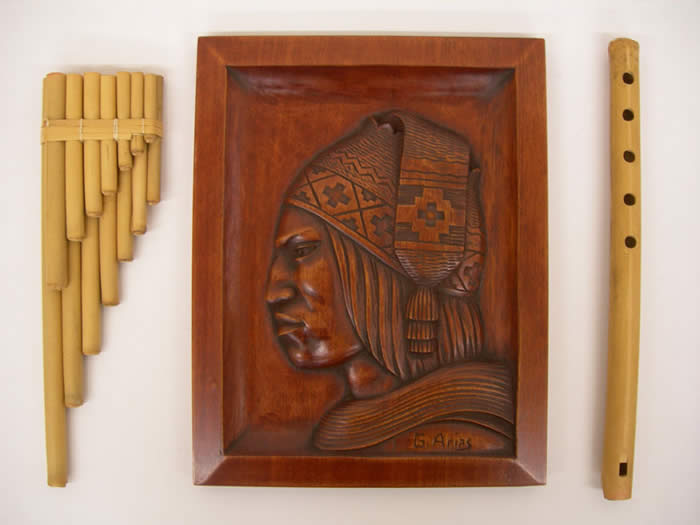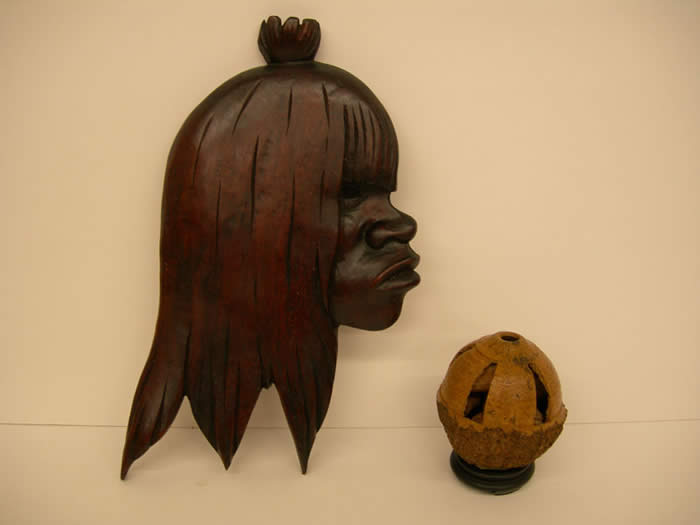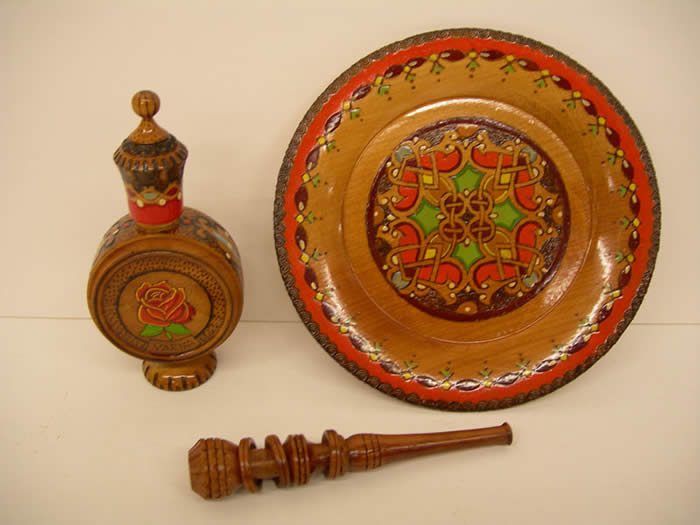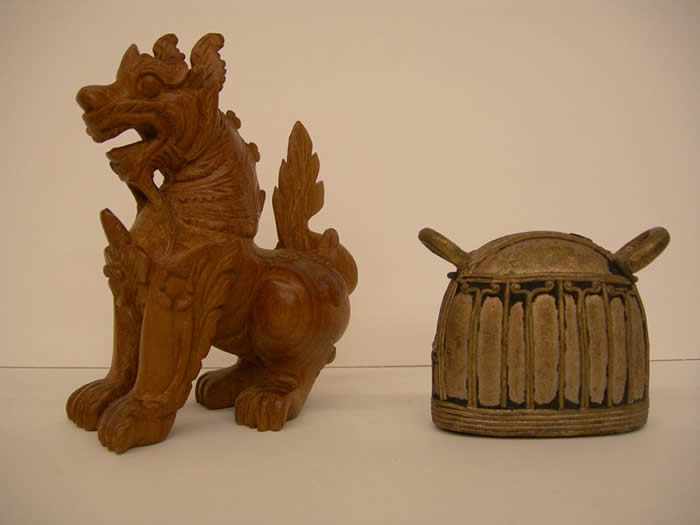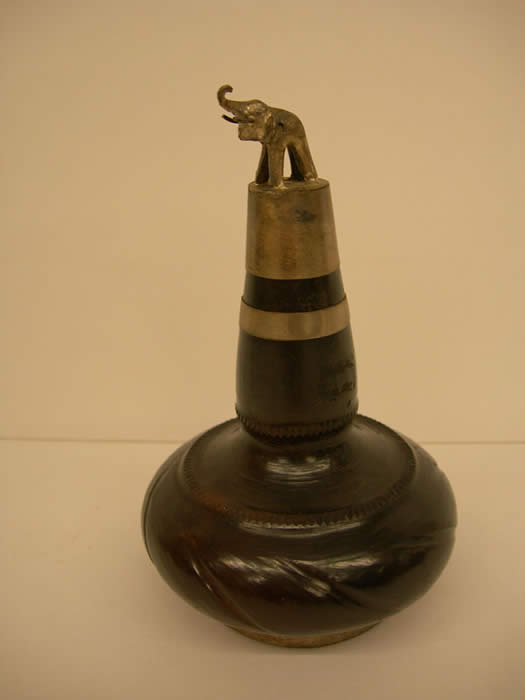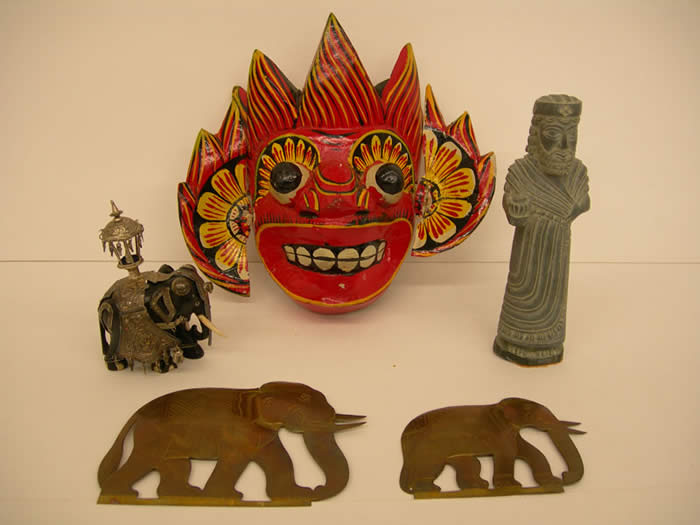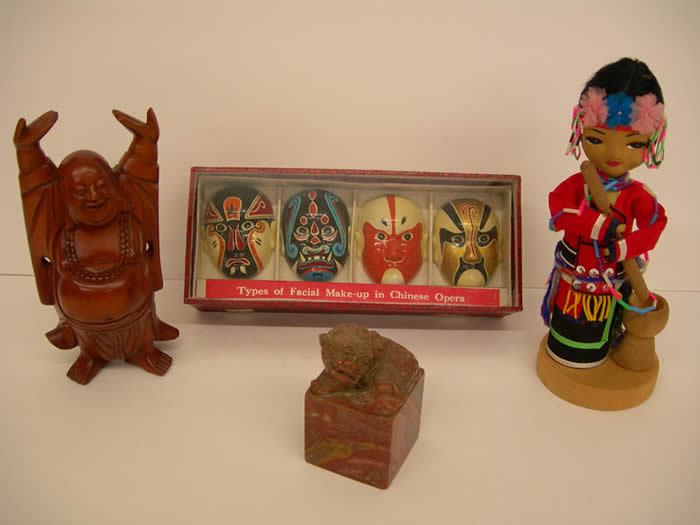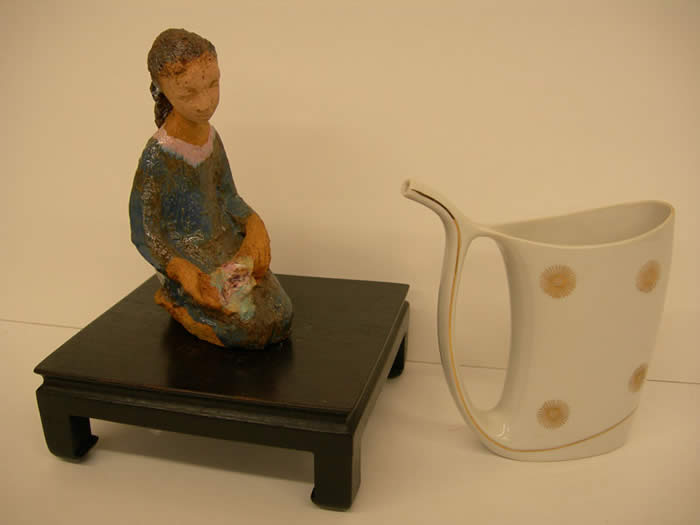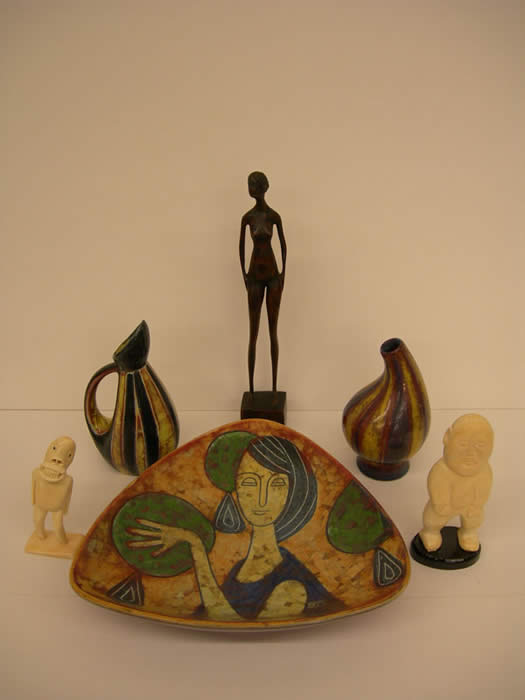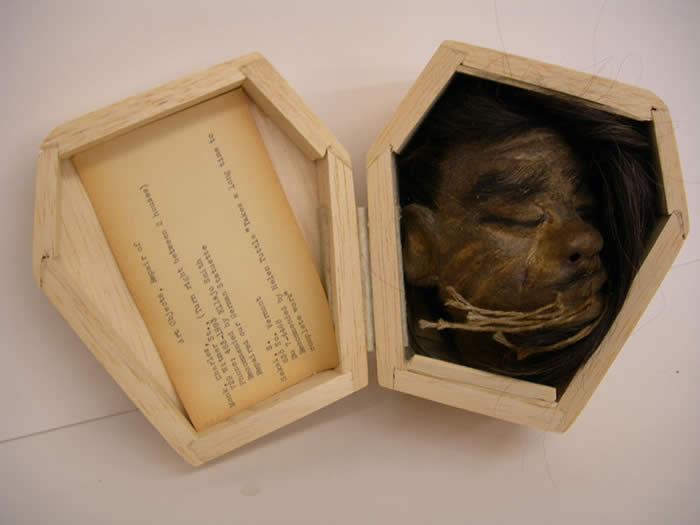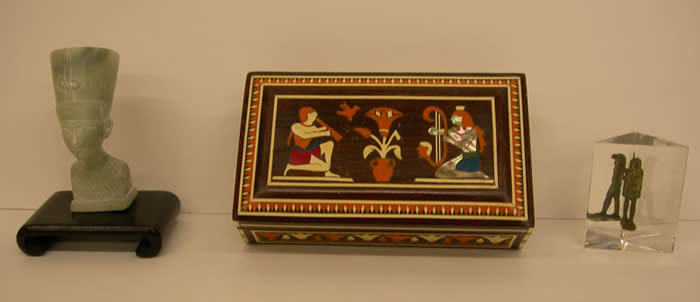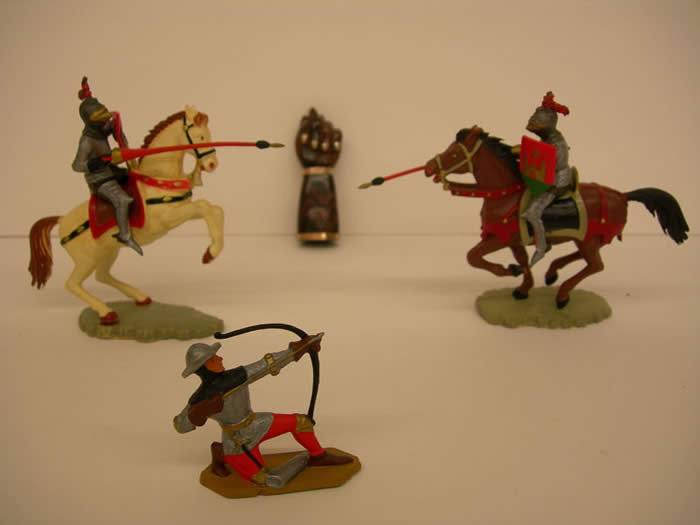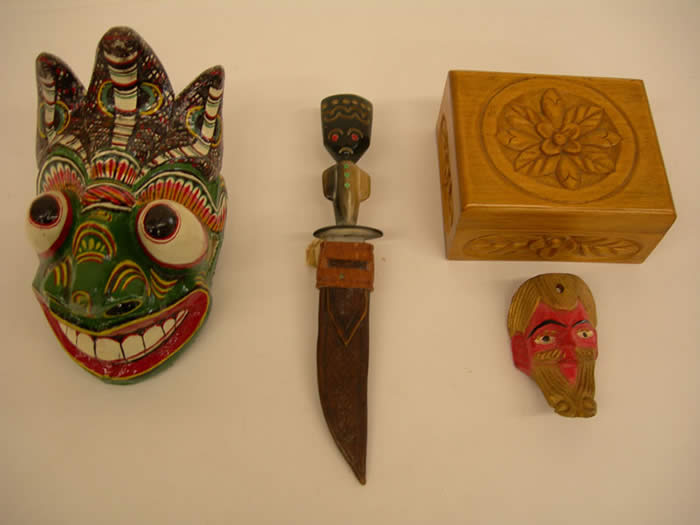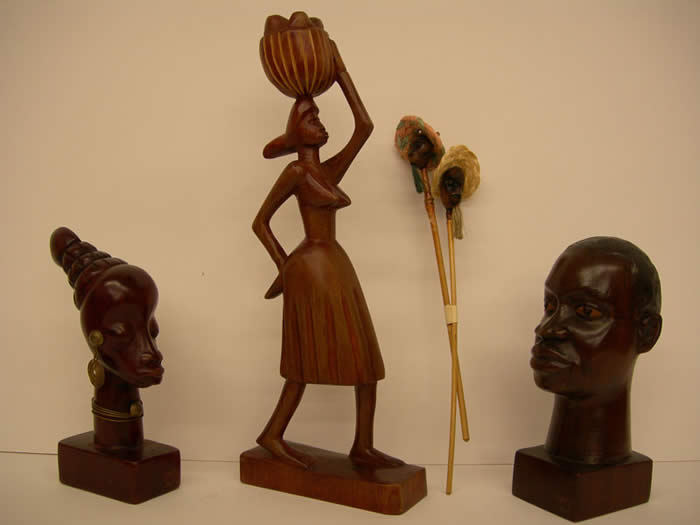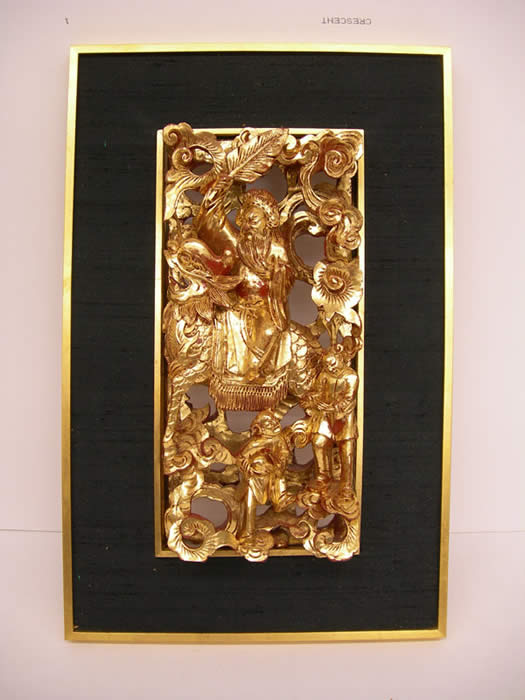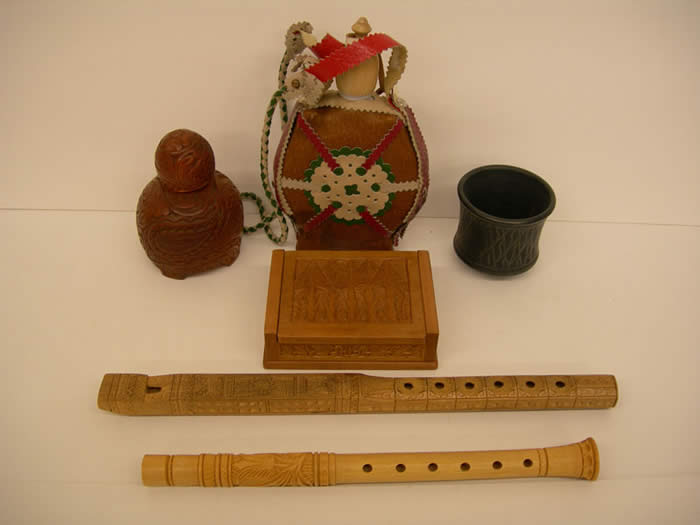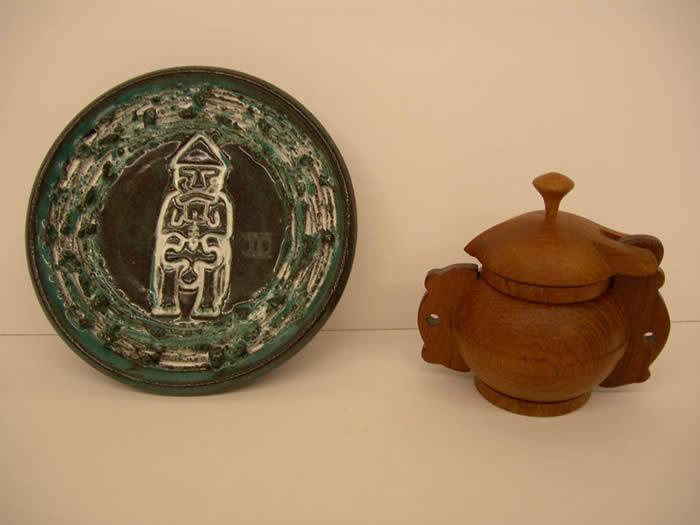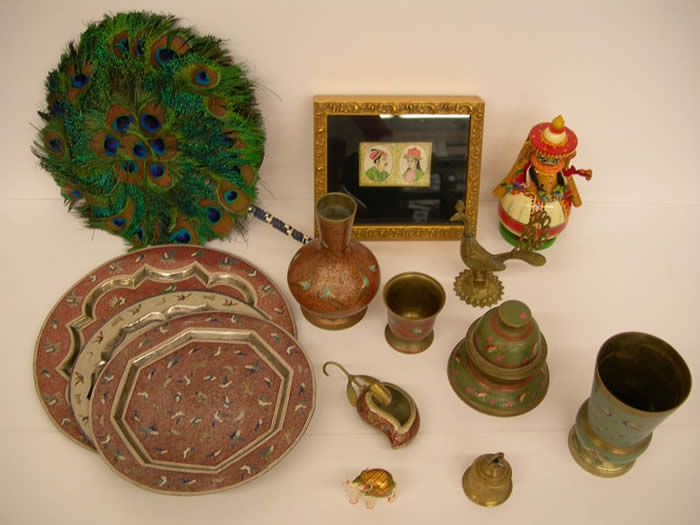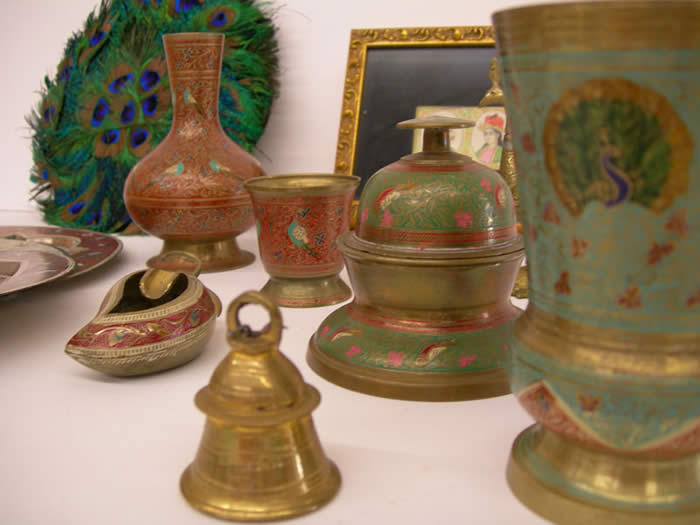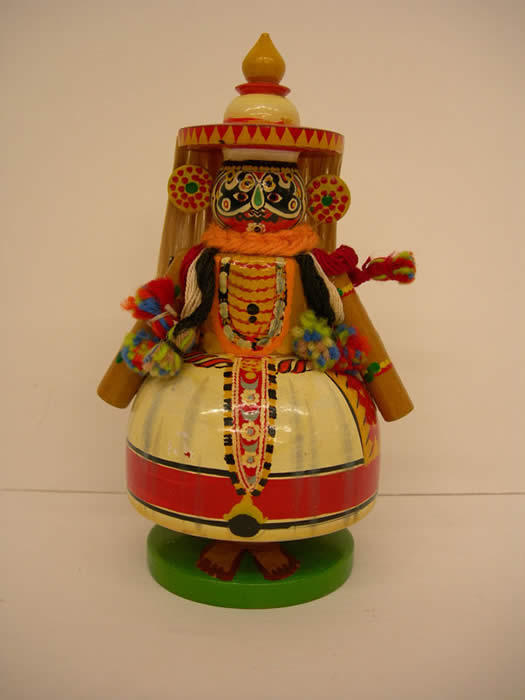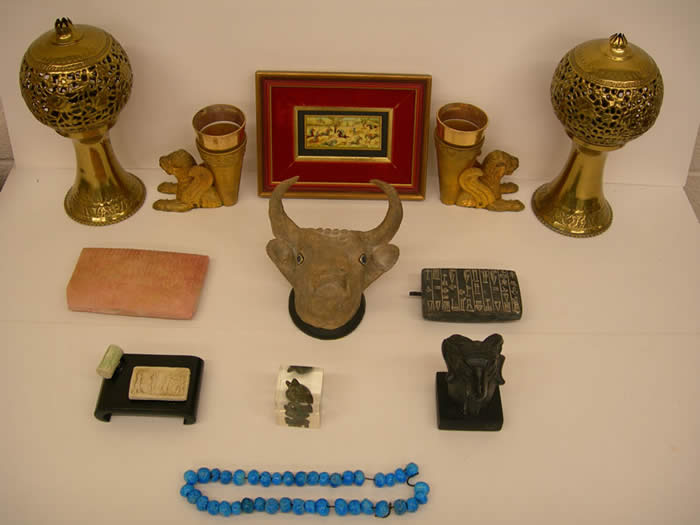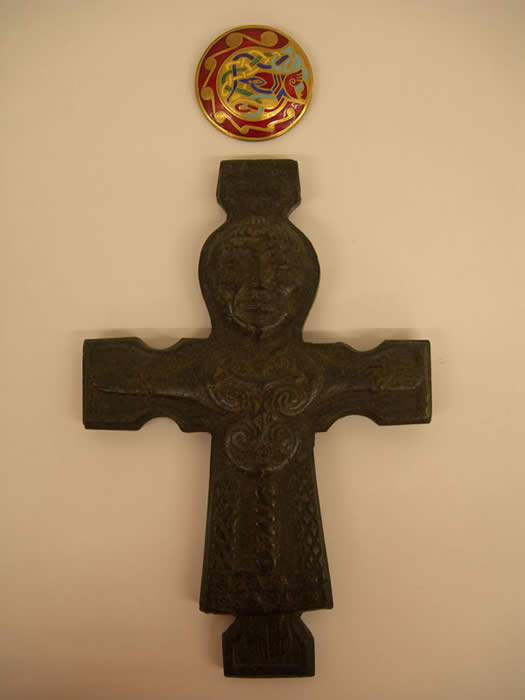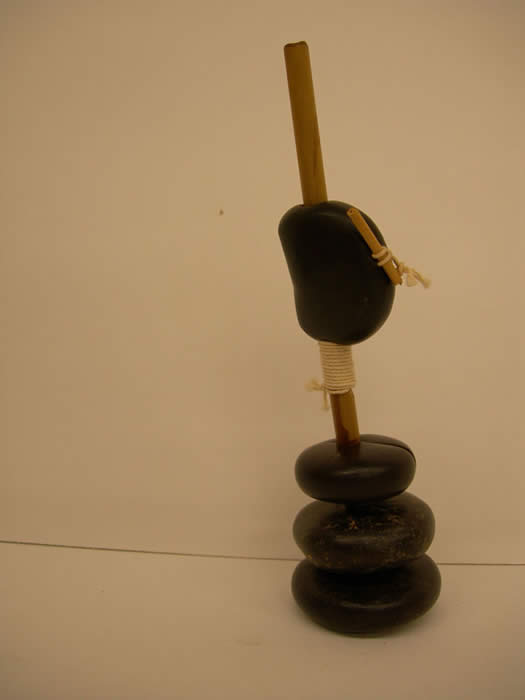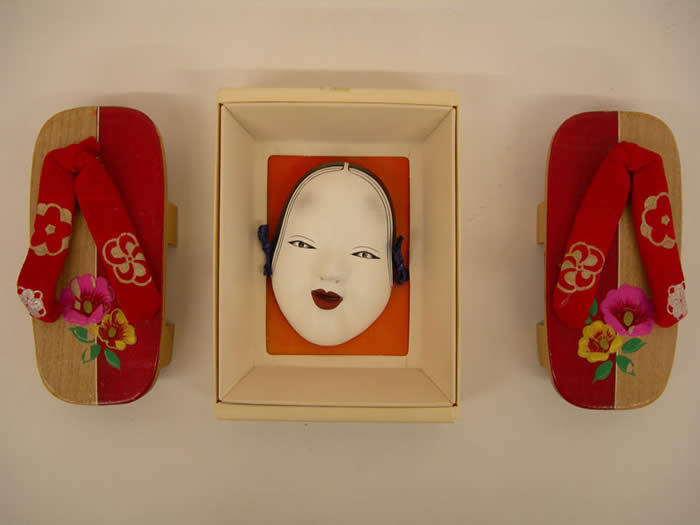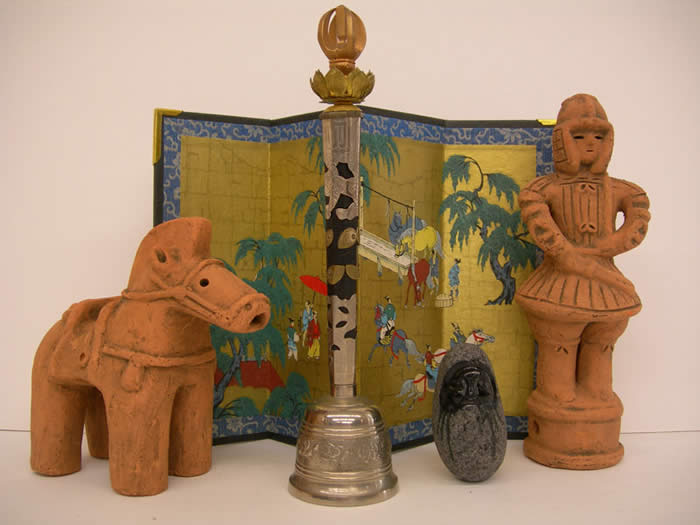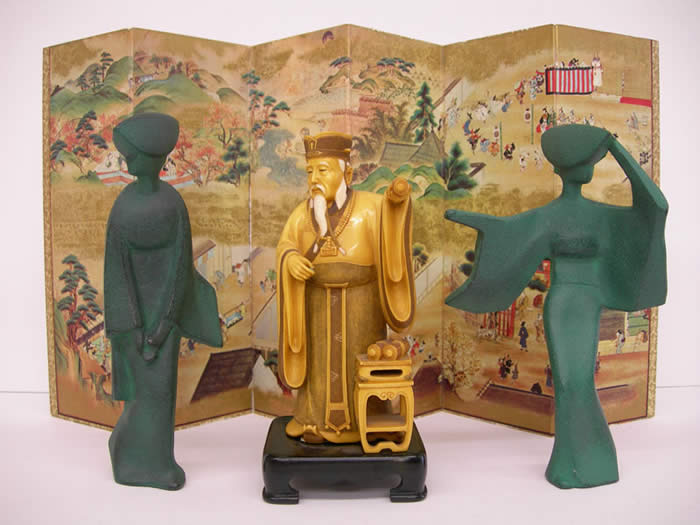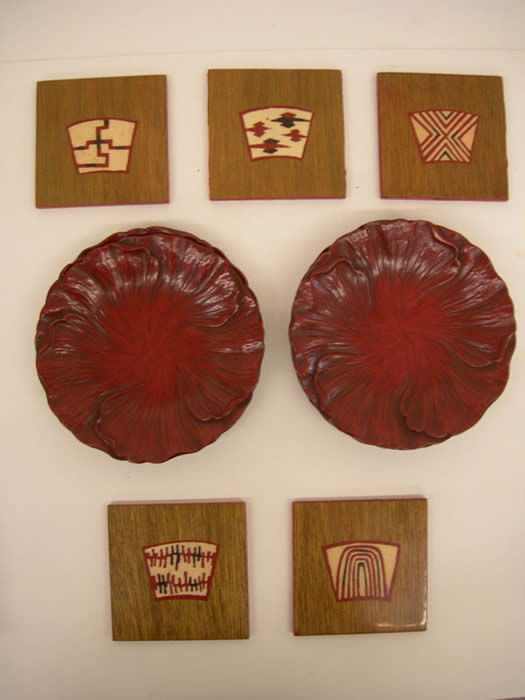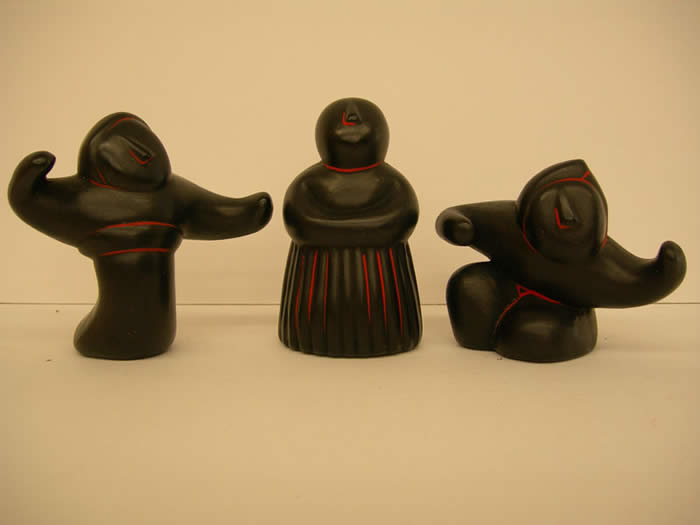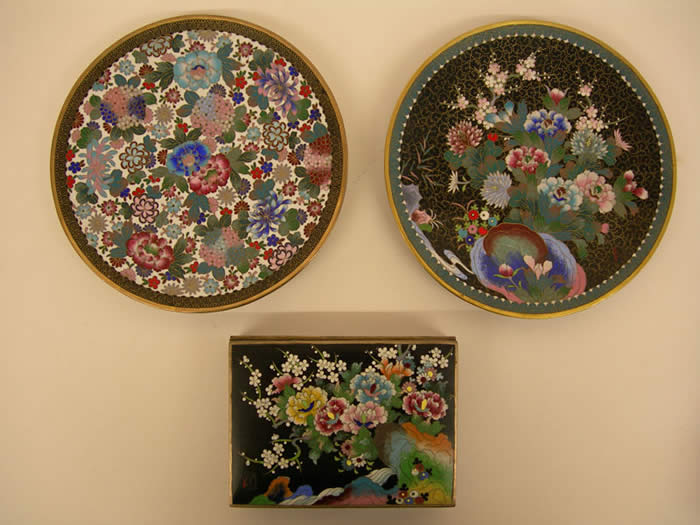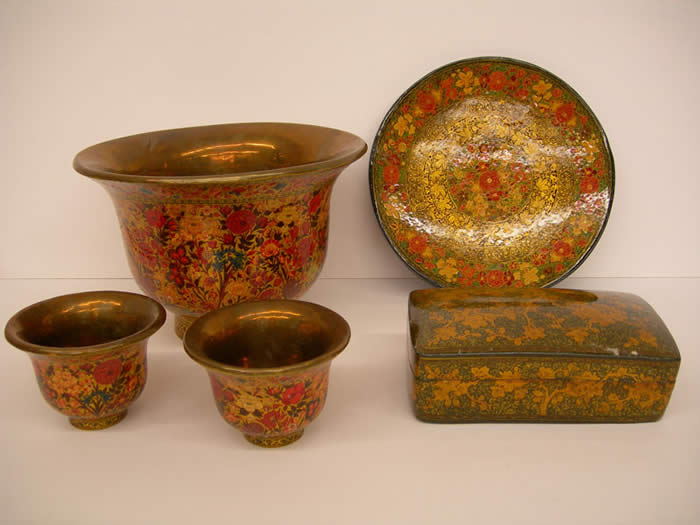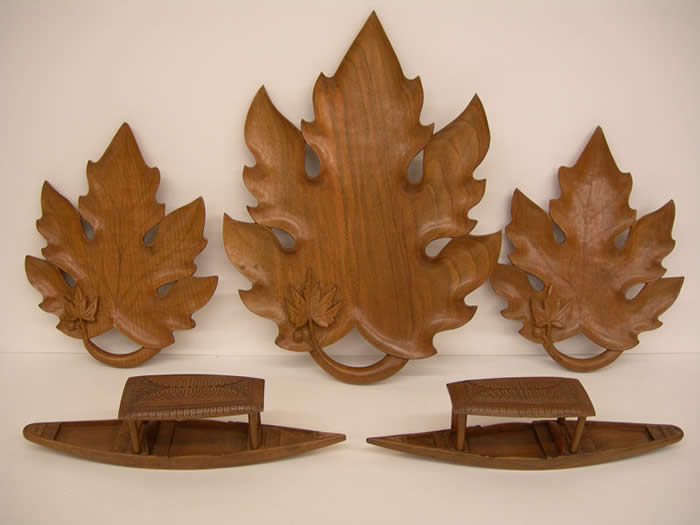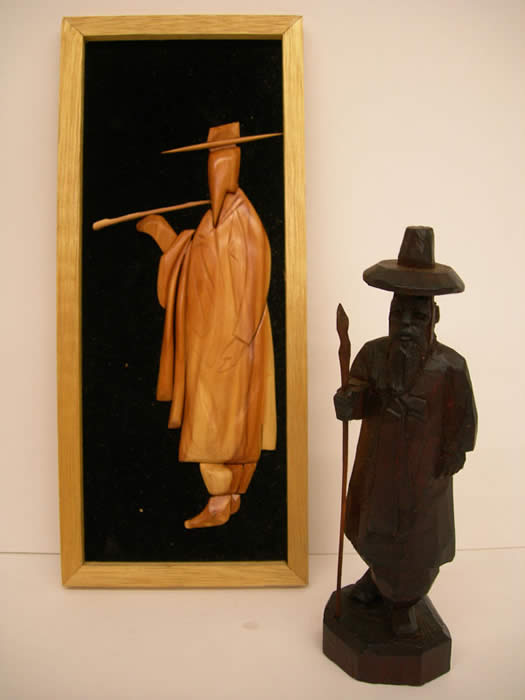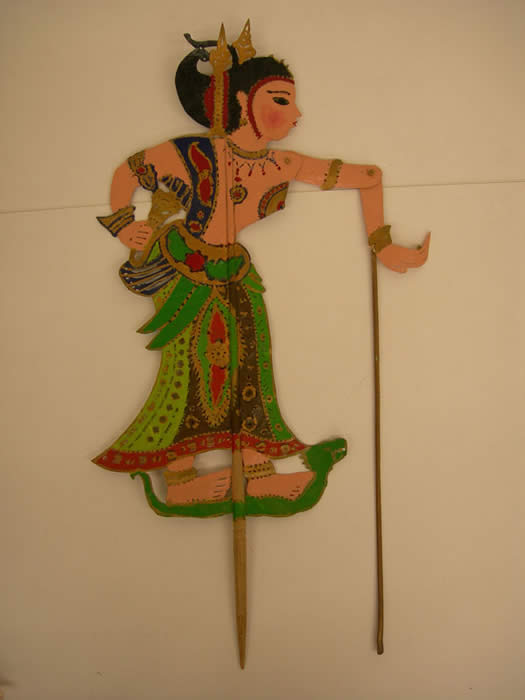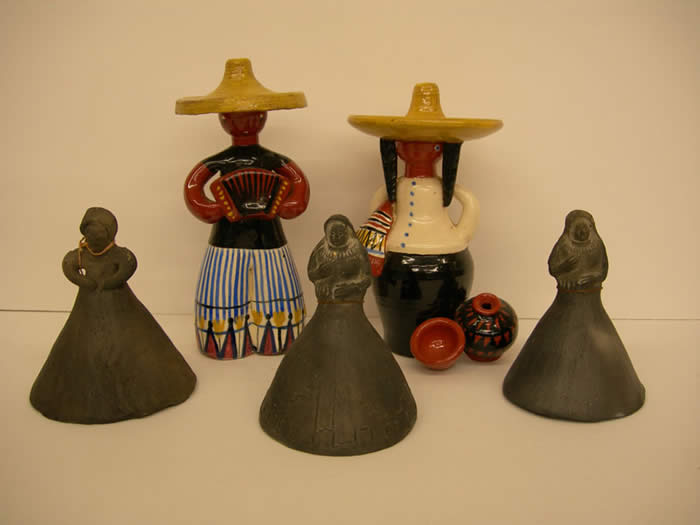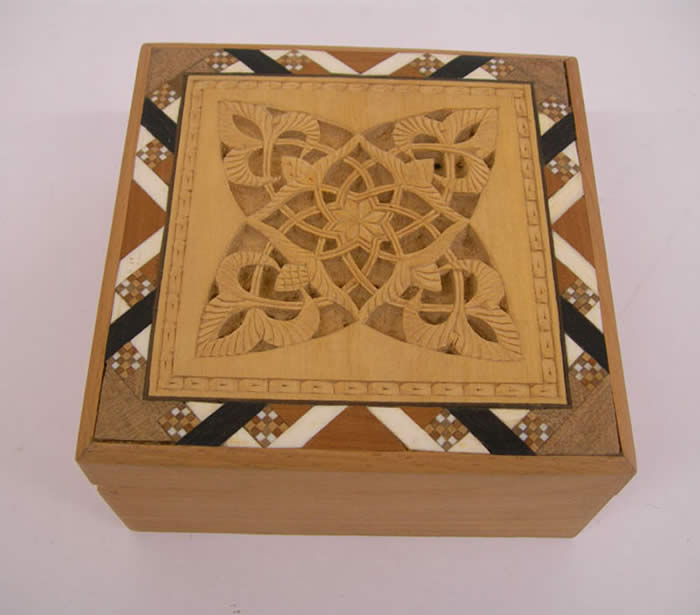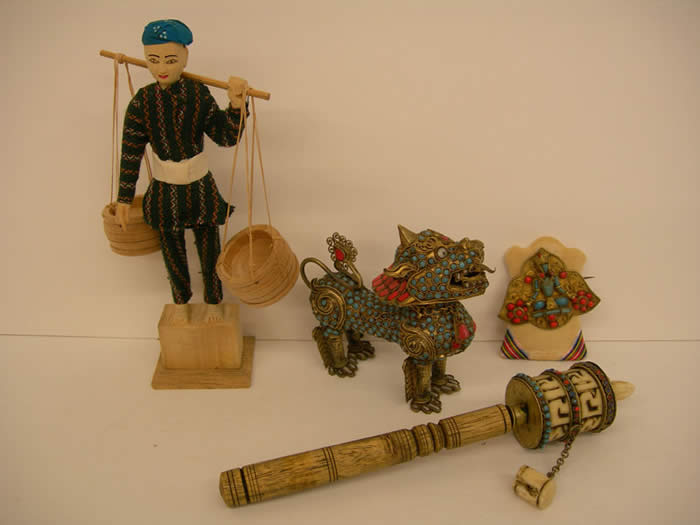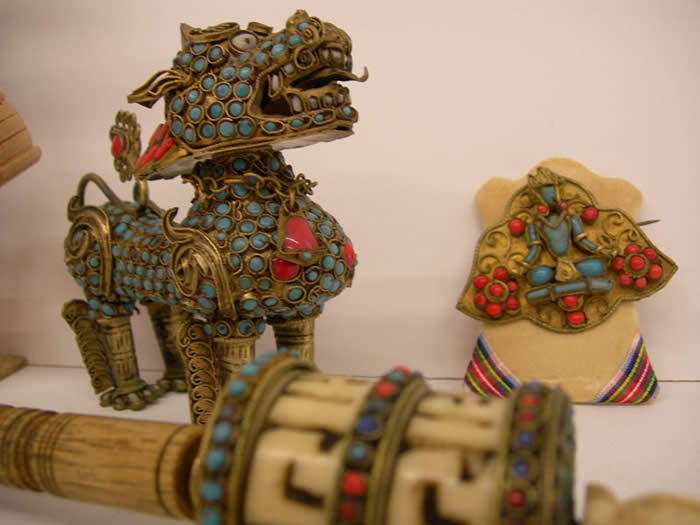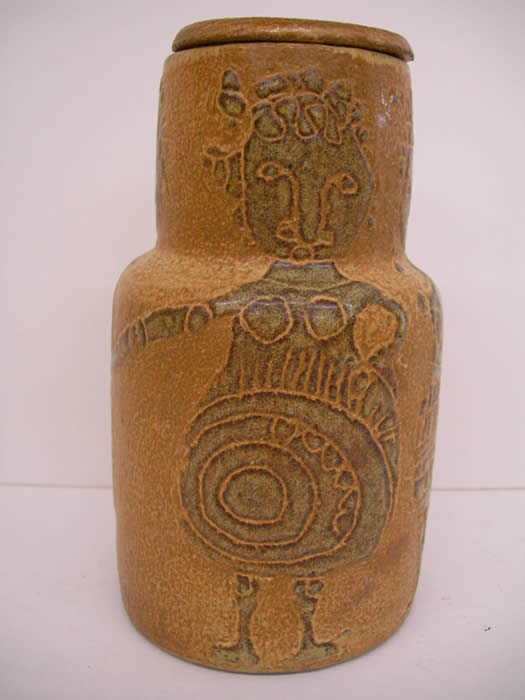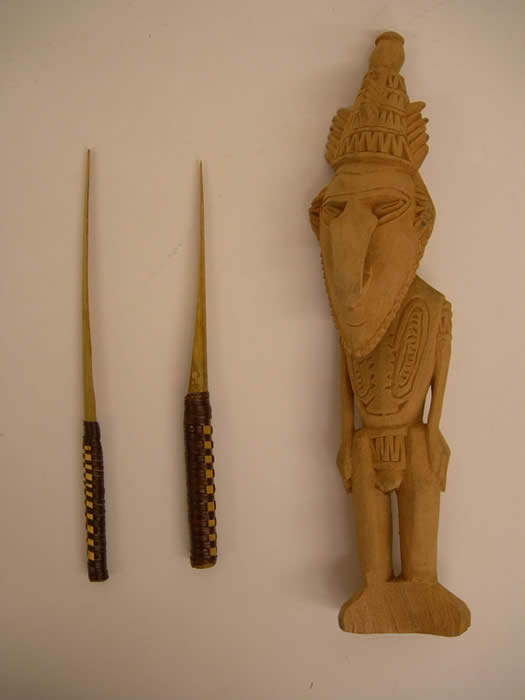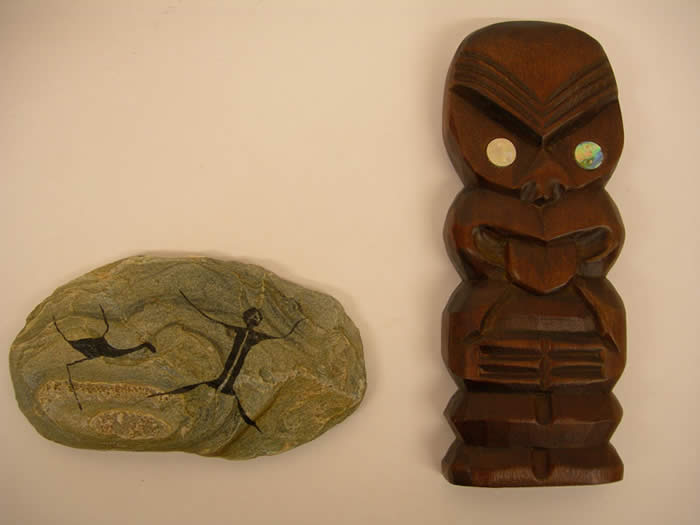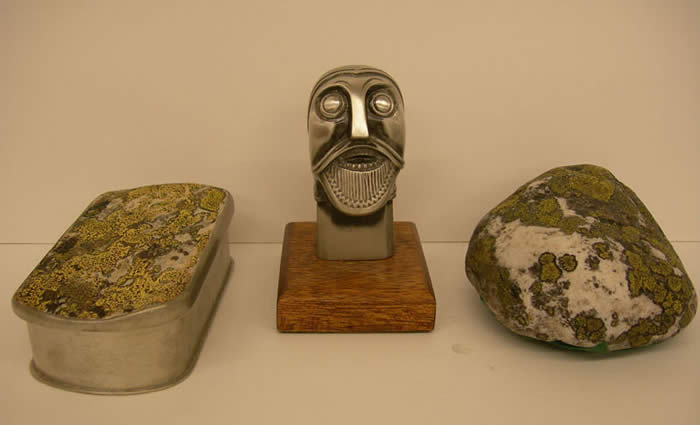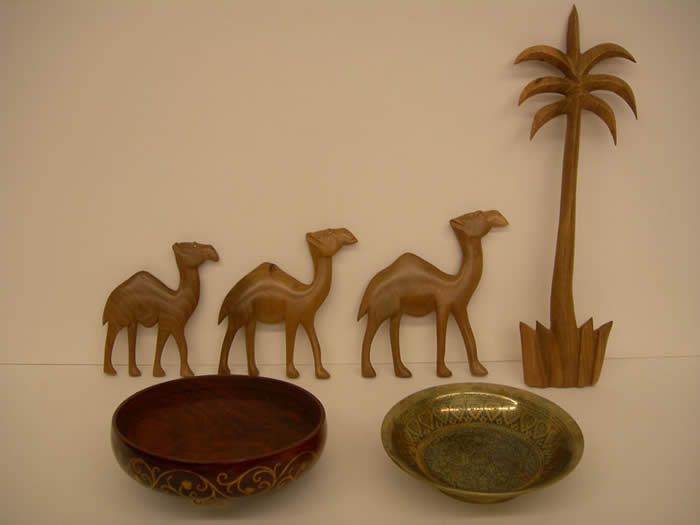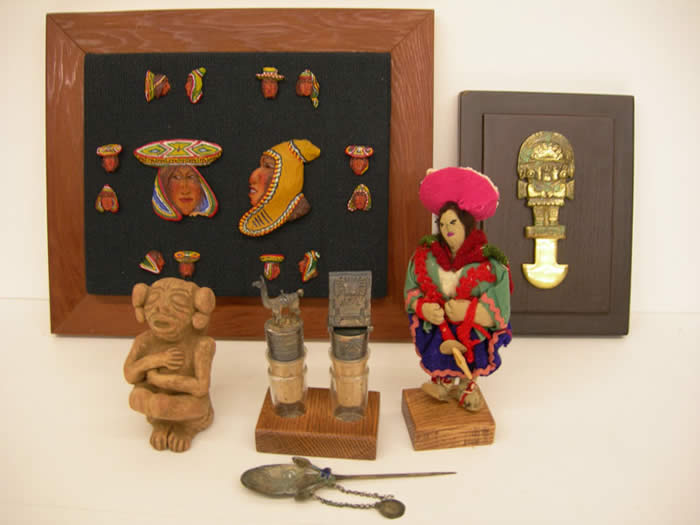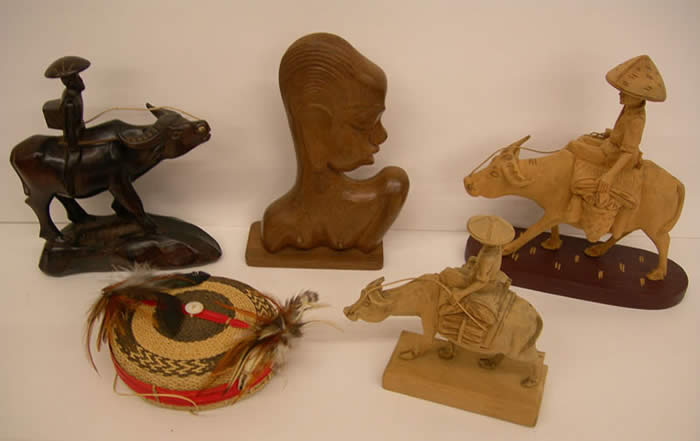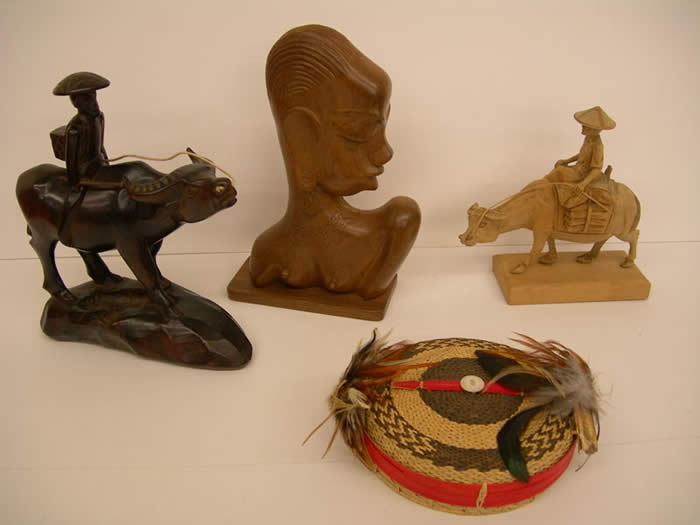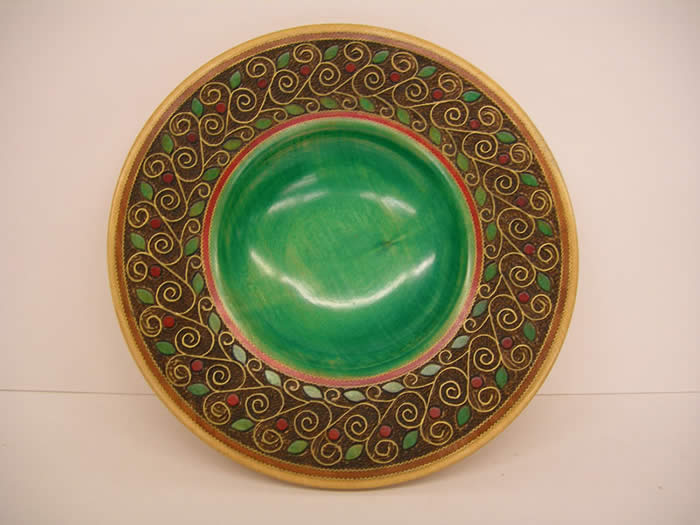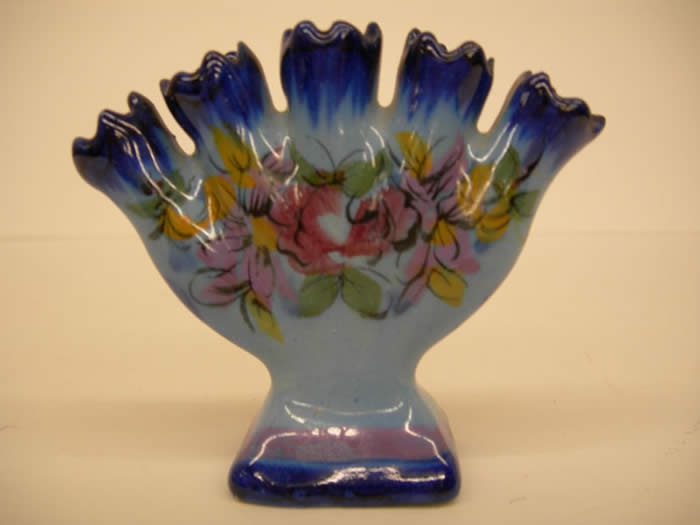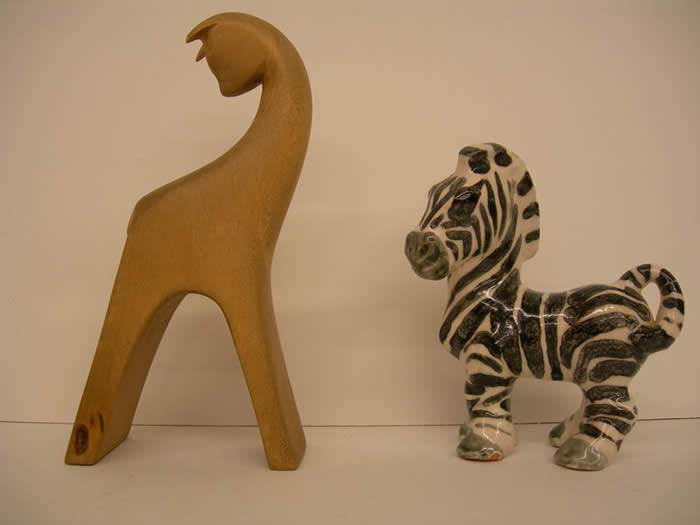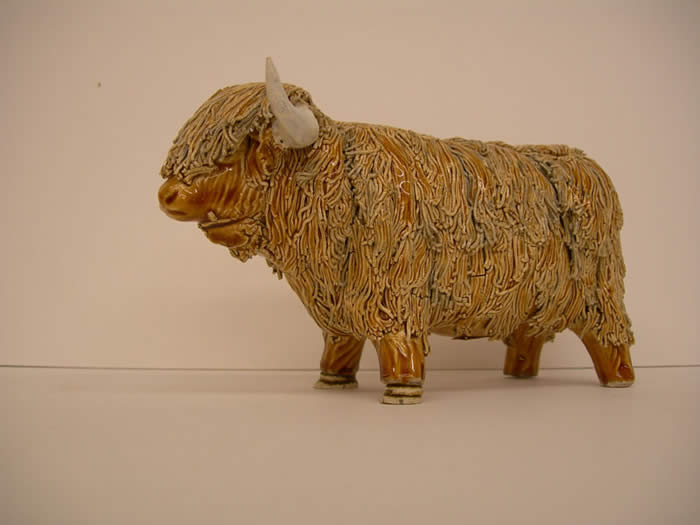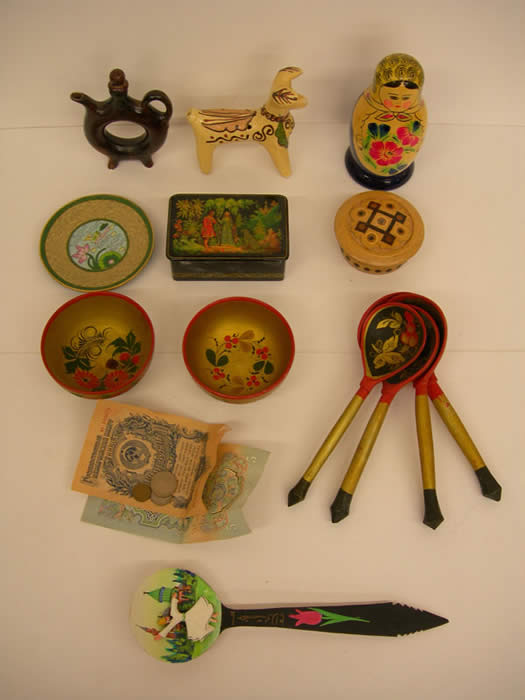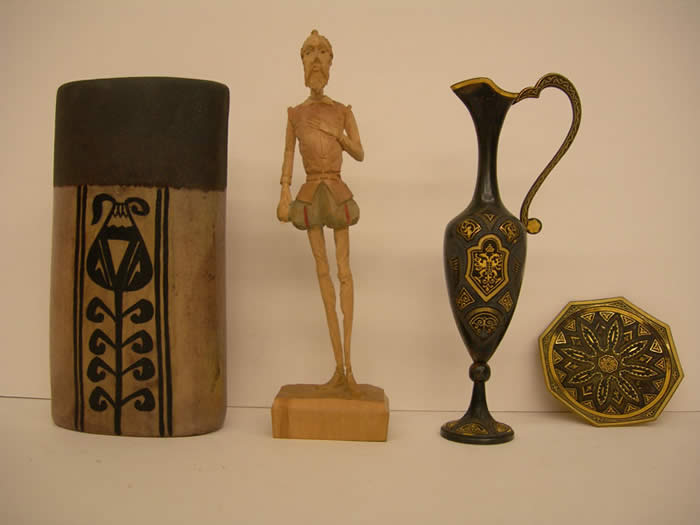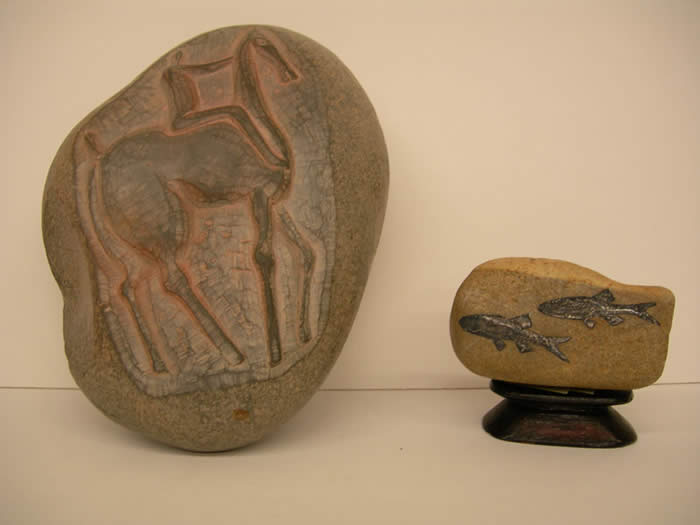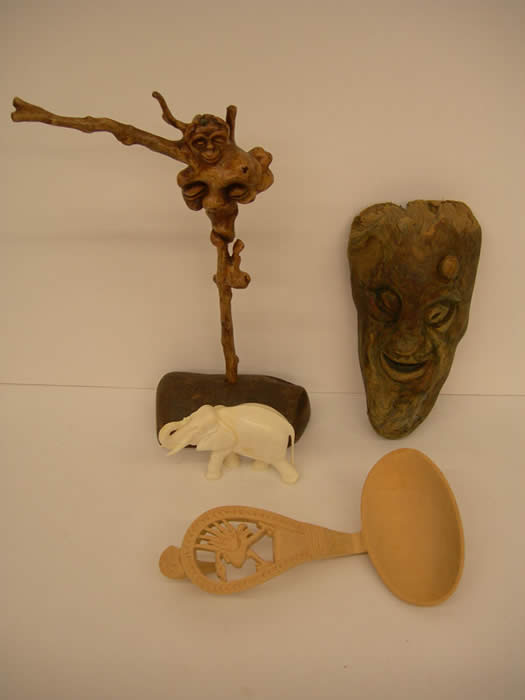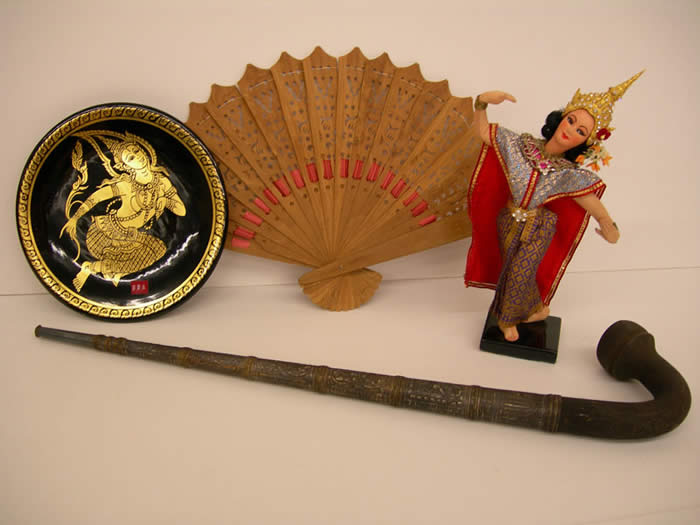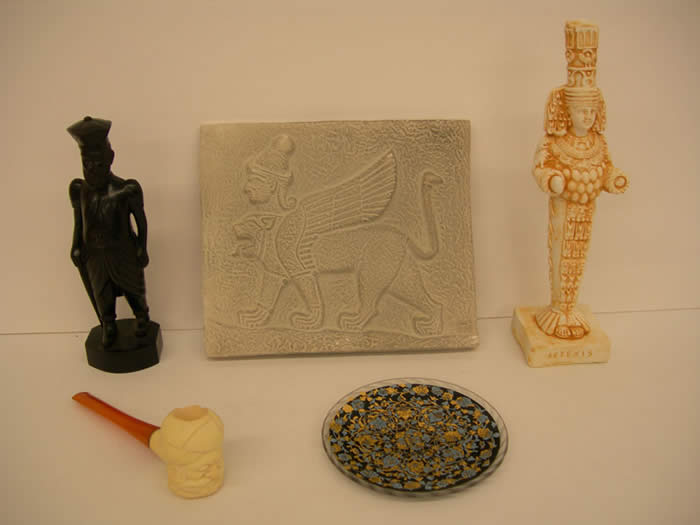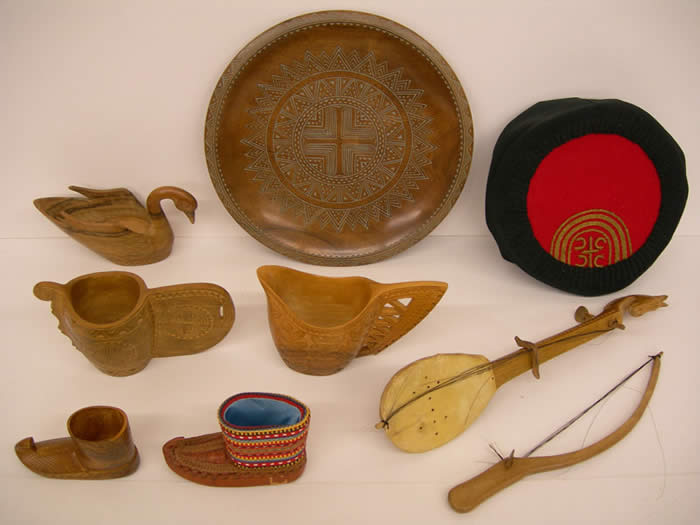The University of Iowa Libraries
Special Collections and University Archives
Finding Aid
|
Thompson Travel and Ethnic Art Artifacts MsC870 Access and Restrictions: This collection is open for research. Digital Surrogates: Except where indicated, this document describes but does not reproduce the actual text, images and objects which make up this collection. Materials are available only in the Special Collections Department. Copyright: Please read The University of Iowa Libraries' statement on Property Rights, Copyright Law, and Permissions to Use Unpublished Materials. Use of Collections: The University of Iowa Libraries supports access to the materials, published and unpublished, in its collections. Nonetheless, access to some items may be restricted by their fragile condition or by contractual agreement with donors, and it may not be possible at all times to provide appropriate machinery for reading, viewing or accessing non-paper-based materials. Please read our Use of Manuscripts Statement. Acquisition and Processing Information: Gift of Sara Conn and Harold Lincoln Thompson beginning in 1974. Photographs: Throughout |
Harold Lincoln Thompson
Sara Conn Thompson |
Scope and Contents
The artifact collection is recorded here with images arranged by the box in which particular artifacts reside. Descriptions (and dollar values) are taken from an inventory made of the collection shortly after Mrs. Thompson's death and before the collection was transferred to the University Libraries. Much of the information regarding acquisition doubtless came from the Thompsons themselves.
Biographical Note
Sara Conn and Harold Lincoln Thompson (1892-1975) were both alumni of the University of Iowa, as were both of their fathers. Harold went on to Rush Medical College in Chicago and took a PhD at the University of Minnesota Mayo Foundation (a copy of his disseration is located in Special Collections at fxMs.T472st). He became a prominent doctor in Los Angeles, specializing in disearses of the stomach. His wife served as office manager for his active practice.
By the 1930s Harold had also become a skilled photographer, successfully competing in regional and national photographic contests. He also collected photographs: 29, some his own, were given to the University of Iowa Museum of Art. By the late 1930s, he had also begun to create 16mm documentary films, a substantial collection of which are currently held by the University of Southern California.
The Thompsons were intrepid travelers, travelling internationally nearly every year and visiting over 119 countries. On return to Los Angeles, they lectured widely about their adventures. As they traveled, in addition to photographing and filming, they collected small artifacts which they exhibited at their lectures and used in promotional literature and as slides. This collection was bequeathed to the Libraries, although some damaged objects and photographs in poor condition were discarded before it was shipped. The Thompson's criteria for acquisition was apparently exhibitability, not dollar or aesthetic value, so the value of individual artifacts is largely modest and the range of quality is quite broad.
Harold compiled three volumes of memoirs, the typecscript of which is in Special Collectons (fxMs.T472re). There is also a volume of his professional writing (fxMs.T742pu) and a scrapbook of memorabilia (fxMs.T472me).
Before their deaths, the Thompsons gave a book collection and made annual gifts to establish a book fund, the Thompson Collection of Travel and Ethnic Arts. After Mrs. Thompson's death, a bequest to the California Community Foundation created an endowment which produces annual income to continue the Collection.
A note on the portrait artist: Edward Runci was born in Genoa, Italy in 1921. With his mother’s encouragement, he began drawing at a young age. His family moved to Pennsylvania in 1930 and Edward found success from his paintings in contests and scholarships. His father forced him to forego school and instead gain employment; Edward joined the Marine Corps in 1937 and met his future wife, Maxine Sunderman; the couple married in 1943. His first gallery opening was in 1945. After the war was over, Runci made many portraits of Hollywood residents. In the later forties he became well known for his pin-up and calendar girl paintings. For more information see http://www.btinternet.com/~brmerc/runci/runci.html.
Box Contents List
Afghanistan
1967, Kabul-Istalif. Ceramic cat. The cat was the most common sculptural figure seen in the souvenir stalls of this village. [Blue]. $25. [Box 8] |
|
Africa (East and South)
Carved oryx resting. $40. [Box 4] Carved wood rhinoceros. $40. [Box 2] Small carved antelope. [Box 4] Small carved antelope head. [Box 5] Antelope head. $25. [Box 5] Carved rhinoceros. Artistic handcrafted black rhinoceros carved by an African artisan. $5. [Box 2] Hand-carved salad forks, one set. [Box 2] |
|
1955, Nairobi. Hand-carved Wakamba mother and child. $100. [Box 4] 1969, Nairobi. Bust of Masai woman. Hand-carved bust of a Masai woman with close cropped ochre-colored hair. Carved by a native African. $150. [also featured below]. [Box 4] Hand-carved Masai head. $100. [Box 4] Carved head of Turkana man. $15. [Box 1] 1955, New York. Carved Masai woman in kneeling attitude. $100. [Box 1] Clay figure of a Masai man. Baked clay Masai warrior, modeled by an African named Babu. $50. [Box 1] 1955, Eshowe, Zululand. Male and female Zulu heads. Clay heads modeled by Hezekiah Ntuli (signed). $75. [Box 1] 1963, Eshowe. Zulu male head modeled by Hezekiah Ntuli. Collected on second visit. [Box 1] |
|
1969, Nairobi. Bust of Masai woman. hand-carved bust of a Masai woman with close cropped ochre-colored hair. Carved by a native African. $150. [Box 4] |
|
Ivory paper cutter with African head of carved wood. $35. [Box 4] Ivory paper cutter. $10. [Box 2] 1955, Kampala. Carved elephant heads, set of two. $125. [Box 4] 1963, Kampala. Carved Kikuyu Elder. $140. [Box 2] Small, carved elephant. [Box 4] Zulu bull modeled by Hezekiah Ntuli. On Thompson's return visit to Ntuli's kraal, he was reminded of their visit in 1955. On reminding him that they were from California, his face lighted, he pointed toward one of his children and he repeated, "California." Standing in front of his thatch hut was his nude two-year-old daughter whom he had named "California." Most children go about nude until they are three or four years old. Note: fragile (broken horns). $50. [Box 5] |
|
1963, Ndebele. Ndebele beaded doll, gourd, pipe and two bracelets. Examples of colorful beaded handicrafts made by members of the Ndebele tribe near Pretoria. $50. [Box 2] 1955, Durban. Zulu ear ornaments, set of two, two sets. $10. [Box 2] Two carved ivory Indian elephants. $20. [Box 2] 1963, Safari II. Elephant hair bracelets, set of three. Bracelets made from the hair of the tail of the African elephant, worn as good luck charms by all hunters. $30. [Box 2] Elephant hair finger ring. $20. [Box 2] 1963, Nairobi. Brooch made from lion claw. $75. [Box 2] Tie clasp made from leopard claw. $50. [Box 2] |
|
1955, Nairobi. (Maybe?) Jambok. Whip made of rhinoceros hide. Said to be used to discipline working wives. [Thompson Travel Oversize Box] Fly switch. Made of wildebeest tail mounted on hand-carved bone handle. Used by African tribal chiefs. Jomo Kenyata is always pictured with one. [Thompson Travel Oversize Box] 1955, Ituri Forest, Belgian Congo. Pygmy spear. Used by pygmies in hunting game. $50. [Thompson Travel Oversize Box] 1963, Serengeti. Captured poison arrow. Used by poachers in killing game. $50. [Thompson Travel Oversize Box] |
|
Hand-carved African masks. [Box 1] Hand-carved African heads, group of three. $125. [Box 15?] |
|
1969, Kampala. Stone Guinea Fowl hen. Likeness of a nesting Guinea hen, hand-carved from soapstone by an African native. $35. [Box 6] |
|
Argentina
| 1950, Buenos Aires. Mate gourd. Note: Silver trim. $50. [Box 4] |
|
Australia
Aboriginal boomerang. Miniature boomerang made by aborigines of Queensland. $3. [Box 2] 1966, Sydney. Aboriginal carving. Hand-carved fish made by aborigines at the Mumbulwar Mission. $4. [Box 2] |
|
Austria
1959, Vienna. Brass dancing Africans, set of three. Examples of Austrian artistic craftsmanship. $225. [Box 2] Carved African Head. [Box 5] |
|
1961, Vienna. Miniature hand painted enamel tray (blue). Another example of Austrian artistic handicrafts. [Box 6] 1963, Vienna. Schloss Fuschl. Hand-carved Austrian fiddler. An example of the many hand-crafted items made in Austria. Schloss Fuschl is a feudal hunting lodge situated in Land Salzburg. $75. [Box 4] |
|
Bali
1967, Bali Beach. Balinese figure in ebony. Hand-carved full figure of a kneeling Balinese woman. Artist not recorded. $150. [Box 5] Hand-carved Balinese female head. By unknown wood carver. $150. [Box 7] 1952, Bangkok. Hand-carved Balinese female figure. Artist unnamed. $150. [Box 5] |
|
Bolivia
Bamboo flutes. The flutes and pipes of which these are examples are made by the Indians of Bolivia. On them they make their native music. $15. [Box 7] Hand-carved plaque by G. Arias. A remarkable likeness of a Bolivian by the Bolivian Indian G. Arias. He willingly creates these carvings only when in need of food or beer. $15. [Box 7] 1950, La Paz. Bamboo flute. $5. [Box 7] |
|
Brazil
1950, Bahia. Brazil nut. Heavy outer shell is cut away in order to reveal the individual nuts, each with its separate shell. [Note: Ugly piece, but keeping - may be useful as a "curiosity piece."] $10. [Box 7] 1969, Rio de Janeiro. Hand-carved head of a Caraja Indian. Realistic carved likeness of the head of an Indian of the Caraja tribe from Mato Grosso. Made by "Mr. Souza," a very old Negro who lives in a suburb of Rio. [Box 7] |
|
Bulgaria
1963, Varna. Miniature wine cash (used for perfume). $25. [Box 6] 1963, Sophia. Carved plate. $22. [Box 6] Hand-carved cigarette holder. $22. [Box 6] |
|
Burma
1972, Mandalay. Temple Lion. Hand-carved replica of Burmese temple guardian lion. Purchased at the Maha Myatmuni Temple. $75. [Box 8] Temple bell. Bronze replica of bell from Mah Myatmuni Temple. $15. [Box 2] |
|
Cambodia
| 1966, Phnom Penh. Silver-trimmed ceramic vessel. Miniature ceramic vessel trimmed with silver and capped by a silver elephant. $5. [Box 7] |
|
Ceylon
1964, Kandi. Hand-carved ebony Perahera elephant. Perehera is a week-long religious festival observed annually in August. On parade, costumed elephants carry and escort the Sacred Tooth of Buddha. $25. [Box 12] 1965, Columbo. Hand-carved stone(?) male figure. $100. [Box 10] Hand-carved and painted mask of demon. $60. [Box 13] 1965, London. Hand -crafted brass elephants from Ceylon, set of two. Purchased from the Ceylon Shop, London. [Box 12] |
|
China
1965, Taipei. Hand-carved Happy Buddha. $10. [Box 8] China Opera make-up models. [Note: Cheap but bright.] $10. [Box 8] 1965, Hualien. Aboriginal Ami doll. The so-called aborigines or Amis are presumed to be the original settlers of Taiwan. Probably of Malayan and Polynesian origin, they number about 190,000. Traditional dances in ancestral costumes are presented for visitors. [Box 8] Personal seal of Sara C. and Harold Lincoln Thompson. After selection of the stone for color and carving, the personal seal is engraved by local artisans. [Box 2] |
|
Czechoslovakia
1961, Karlovy Vary. Ceramic sculpture of girl kneeling; by Vaclav Lokuene. $75. [Box 11] 1961, Marianske Lazne. Mineral water drinking cup. Visitors at the spas sip "curative" waters through the stem which is an extension of the handle. $35. [Box 11] |
|
Denmark
1959, Copenhagen. Modernistic ceramic bowl. Crafted by Michael Andersen & Son, Bornhom. $150. [Box 13] Modern ceramic bud vases. $35. [Box 11] 1963, Copenhagen. Hand-carved female figure by Otto Pederson. Selected from a group of wood carvings on display at Den Permanente. Extensive correspondence with Den Permanente and Bröste's of Copenhagen yielded only the negative reaction from an artist we encountered. On August 1, 1966, M. Berger of Bröste's wrote: "In answer to your letter I am sorry to have to disappoint you concerning information about the sculptor Otto Pederson. We informed him about your request and asked him about personal details, but unfortunately he refused to let us know anything about himself. He furthermore pointed out that he did not wish to appear in any catalogue, private or not and therefore we are very sorry not to be able to be of any help." $65. [Box 10] 1963, So. Stromfjord, Greenland. Primitive male figure. Carved from walrus ivory by native Greenlanders. $100. [Box 10] Similar ivory figure. $75. [Box 10] |
|
Ecuador
| 1969, Quito. Imitation shrunken head. The Jivaro Indians of the Amazon basin still shrink the heads of captured enemies. Whereas it is possible to buy the shrunken heads from the Jivaros, Ecuador law forbids their export. The imitation is made of goatskin. $75. [Box 7] |
|
Egypt
1953, Cairo. Sculpture of Nefertiti. Bought in L.A. for $1.25. Made in Japan; poor piece. $10. [Box 8] Hand-crafted Egyptian inlay box. [Box 8] 1965, University of Pennsylvania Museum. Egyptian God Horus. Certificate reads: "New Kingdom, about 650 B.C. Hawk-headed Egyptian god of the rising sun. One of the great gods of Egyptian religion. Late New Kingdom, about 650 B.C." Features indistinct. Poor reproduction. $5. [Box 2] |
|
France
1965, Carcassonne. Plastic figures of Crusaders, set of four. $20. [Box 6] |
|
Germany
1961, Stuttgart. God head from Sardinia. Copy of war-like god head with four eyes and four arms from Teti, Sardinia. $40. [Box 15] |
|
Guatemala
Mask of green devil. $10. [Box 9] Hand fashioned hunting knife. $35. [Box 10] 1957, Chicicastenango. Miniature mask of Conquistador. The Conquistadors usually are caricatured. $10. [Box 10] 1957. Guatemala City. Hand-carved cigarette box. $20. [Box 6] |
|
Haiti
Carved head of Haitian female by unknown carver. $100. [Box 7] 1960, Port-au-Prince. Carved Haitian female figure by J. Barnard. [Box 7] Miniature Haitian heads on sticks, set of two. Simulated heads of Haitian natives fashioned from cashew nuts. $10. [Box 2] Carved head of Haitian male by unknown carver. $100. [Box 7] |
|
Hong Kong
| 1967, Hong Kong. Chinese carved panels. hand-carved panel, gilded in high relief, depicting a Chinese emperor on a lion-headed prancing beast with cloven hooves. Author not recorded. [Box 3] |
|
Hungary
1961, Budapest. Glass bottle enclosed in hand-carved wood. $50. [Box 8] Shepherd's flask. Gift of Paul Tanos. $25. [Box 8] 1961, Budapest. Black ceramic cup. [Box 8] Hand-carved cigarette box. $50. [Box 6] 2 wooden flutes. $15. [Box 8] |
|
Iceland
1970, Reykjavik. Lava Ceramic. Small ceramic plate, product of the Gilt Company of Reykjavik. The rough surface of the ceramic results from the inclusion of lava from on of the volcanoes in Iceland. The figure is a replica of a bronze statuette in the National Museum of Iceland. It represents a seated person wearing a conical head dress and holding a strange design. It is thought to be a heathen god of the period of 1000 AD. The original bronze figures (6.5 cm) were carried by the people of the North as amulets to protect them from evil. [Box 6] Replica of a small bowl. Small replica of the wooden bowl from which early Icelandic settlers were served their food which they ate with spoons of horn. [Box 6] |
|
India
1953, New Delhi. Peacock feather fan. $8. [Thompson Travel Oversize Box] Hand-crafted brass plates, set of three. $150. [Box 3] Hand-crafted brass bud vase. $35. [Box 11] Jaipur. Hand-crafted brass drinking tumblers, set of two. $76. [Box 11] Hand-crafted miniature brass bell. [Box 11] Hand-crafted brass elephant bell. $75. [Box 10] Small painted ivory (?) elephant. [Box 10] Hand-crafted brass ash tray. [Note: small, leaf shaped.] $10. [Box 10] 1965, New Delhi. Hand-crafted brass peacock. Intended as a perfume dispenser. $50. [Box 10] Kerala doll named Kathaki Hanuman. Named after a native Kerala dance. $10. [Box 14] 1967, New Delhi. Indian miniature. Hand painted portrait of Baber and his wife Jadha Bai. Baber was the founder of the Mogul Dynasty. He died in 1530. We photographed his tomb in Kabul. $60. [Box 11] |
|
Iran & Iraq
1965, University of Pennsylvania. Clay tablet. [description not transcribed p21]. $15. [Box 11] Bronze figure resembling a dog. Obtained from excavations at Amlash, Iran, 1000 BC. $4. [Box 2] Cylinder seal and impression from Ur. ... jadeite...[description not transcribed p22]. $5. [Box 12] Bull's head from Ur. ... cast in silver. [description not transcribed p22]. $50. [Box 14] 1965 Teheran. Replica of golden rhyton from Hamadan. The body is in the form of a snarling, winged lion; the lip of the horn is decorated with a formal frieze of alternate lotus buds and blossoms. Original in Teheran Archaeological Museum. (The rhyton was a favorite form of drinking vessel derived from barbarian drinking horns. The Achaemedian metal rhytons are copies of these. Coican, W. The Medes and the Persians, 1965, p120, plate 33). $50. [Box 11] Two Iranian brass lamps, copies of later Persian candlesticks. [Box 13] Persian miniature painting (on ivory or bone). [Description p23 not transcribed]. $70. [Box 11] 1966, University of Chicago Oriental Institute. Steatite Ram's Head. [Description not transcribed p23]. $50. [Box 12] Black stone tablet of Shulg. [Description p23 not transcribed]. $10. [Box 12] 1967, Teheran. Persian blue beads. Handcrafted from clay, a simple strand of beads, notable chiefly for their Persian blue color. $10. [Box 2] |
|
Ireland
Enameled brooch with design from the Book of Kells. [The Book of Kells was donated to Trinity College in 1661. Begun 1200 years ago by unknown penmen in St. Columcilles Monastery in Ionia. Refuges from Kells, between 802 and 815, brought with them the partly finished book. The main contents are the four canonical gospels in Latin. This highly illuminated book is an outstanding representative of Celtic art. (Quartayne, A. The Irish Story, 1960, 34-41)]. [Box 2] 1961, Dublin. Seventh century Irish robed Christus. Hand wrought in Irish peat from the Iron Book Cover Plaque in the National Museum, Dublin. Possibly the earliest known sculptural representation from the Western world. $30. [Box 7] |
|
Jamaica
1960, Kingston. Jamaican cocoan, a kind of spinning toy. $10. [Box 2] |
|
Japan
Child's getas, pair. $2. [Box 8] 1972, aboard Japan Airline 747. Mask of Zo-Onna. Replica of the Noh mask called Zo-Onna. It characterizes a "young, pure and divine" woman in the traditional Noh religious folk dances. In manufacturing the mask, consideration is given to the carving and coloring in order to express joy and anger with the same mask to the fullest stage effect. [Box 8] |
|
1966, Miyazaki. Clay figure of a man and a horse. Replicas of burial figures from the Tumulus or Rice Period, 200-500 AD. They stand in Haniwa Park, one of the few anthropological sites in Japan. [Box 8] Miniature Japanese screen. $15. [Box 2] Shinto bell. Rung during temple worship. $150. [Box 2] 1966, Toya Lake. Ainu face. Face of an elderly bearded Ainu carved in an egg-sized piece of obsidian otherwise smoothed and rounded by having been rolled in the bed of a stream. $25. [Box 2] |
|
Los Angeles. Twelve-Month Festival Screen. "The Festivals of the Twelve Months" is a brilliantly detailed chronicle of year-'round observances and celebrations of 17th century Japan. The original was painted by Hanabusa Itcho (1652-1724), an outstanding artist of the Genroku Period, on two fine paper screens. The original screens belong to the Fenollosa-Weld Collection in the Boston Museum of Fine Arts. They were reproduced by Horizon, a magazine of the arts. Gift of Maury Kubota. $10. [Box 6] 1966, Seattle. Japanese Dancers. Pair of impressionistic moulded iron sculptures of female dancers with head dress and kimono. $50. [Box 6] 1966, Kyoto. Chinese scholar. Commanding figure of an elderly Chinese scholar carved by the Japanese artist Gyoku-Do. [Ivory?]. $200. [Box 8] |
|
| 1966, Kamakura. Kamakura-bori. Delicate light wood trays in designs said to have been taken from stone-age bowls engraved with whirlpool or cloud patterns. Lacquered set of 5 with bases. $30. [Bases in Box 6, plates in Box 8] |
|
| 3 black pottery figures. Replicas of black pottery figures found, along with other treasures, in the tombs of the Age of Civil Wars, 403-429 BC, in North China. The light, rhythmical movement of the merry figures and graceful dances with their arms outstretched, while simple, are perfect expressions of Old China. $100. [Box 6] |
|
Cloisonne plates, set of two. $175. [Box 8] Cloisonne box. $100. [Box 6] |
|
Kashmir
1953, Srinigar. Papier-maché plate. The Kashmiri are skilled craftsmen in the use of papier-maché. $50. [Box 9]. Large papier-maché bowl. [Box 13] Papier-maché box. [Box 9] Small papier-maché bowls, set of two. [Box 9] |
|
Hand-carved chinar leaves, set of three. Known also as the Oriental Plane Tree, the chinar is a beautiful tree with large, maple-like leaves and acorn-like seed pods. $50. [Box 9]. Miniature hand-carved shikars, set of two. Man-powered boats used as taxis and limousines on Lake Dal. $70. [Box 9] |
|
Korea
1967, Seoul. Hand-carved Korean man. Elderly Korean gentleman with staff in native costume. Carver unknown. $65. [Box 2] Hand-carved wall plaque. Hand-carved, stylized Korean gentleman with pipe. $25. [Box 13] |
|
Malaysia
| 1965, Kuala Lampur. Shadow figure. These figures are used by entertainers to create shadows in motion against a black-lighted screen. Gift of Mr. Chia Siew Seng. [Thompson Travel Oversize Box] |
|
Mexico
1954, Oaxaca. Ceramic bells, set of three. Modeled by Sra. Rosa. $25. [Box 15] 1959, Helsinki, Finland. Ceramic Mexican figures. By Henrik Piipsa (English = Bishop). Decorative ceramics manufactured by Sadi Ceramics, Kupittaan, Finland. [Box 14] |
|
Morocco
| 1965, Marrakech. Hand-crafted Moroccan inlay box. [Box 9] |
|
Nepal
1965, Katmandu. Nepalese jeweled lion. Along with the elephant and the monkey, the lion is an object or chimera of Oriental mythology a thousand times stronger than man. These lion figures often guard the doors of temples. $85. [Box 6] Tibetan prayer wheels. Usually carried on the person, the cylinder contains 108 printed prayers. On twirling the wheel, all 108 prayers are thought to be repeated with each revolution. $40+. [Box 6] Nepalese pendant and brooch. Each item contains a sitting Buddha. Here the Buddha sits in one of the four recognized attitudes of Buddha, except that the hands are closed. In the attitude of enlightenment, Buddha sits cross-legged, the left hand open on the lap and the right hand on the right knee, with the fingers pointing downward. (Elliot, J.H. Guide to Nepal, 1963, p. 51). ? 1969, Patan. Hand-carved Nepalese peasant. Carved figure, dressed in native peasant costume, carrying vessels suspended from the ends of a shoulder yoke. $6. [Box 6] |
|
Netherlands
1963, Delft. Royal Delft pot with lid. Certificate of origin reads: "Pot with lid 16.5 cm high thrown on the potter's wheel in red clay and decorated in brown and green. Sinteregeg by Marijke van Vlaardingen, April 1962." The undersigned declare that the piece, MVV 104, is originating from the experimental section of the Royal Delftware manufactory, Delft, Netherlands. They furthermore declare that this piece was only made once. [Box 4] |
|
New Guinea
1966, Lae. Native hand tools. Sharp pointed tools made from bamboo and decorated by New Guinea aborigines. [Box 2] 1966, Mount Hagen. Native God. Woodcarving of one of the tribal gods worshipped by New Guinea aborigines. (Broken). $35. [Box 15] |
|
New Zealand
1966, Mount Cook. Rock drawing. Reproduction of one of the many typical drawings made by Maori hunters and found in limestone shelters of the South Island. Here a hunter is pursued by a bird. [Box 2] 1966, Aukland. Hand carved Maori warrior. The Maori's highest art form is wood carving. The warrior's protruded tongue is a mark of defiance intended to frighten a foe. $75. [Box 2] |
|
Norway
1959, Oslo. Tin box inlaid with living lichen. An example of a number of artistic articles inlaid with stone mined in Norway. The lichen is alive, hence the stone constantly changes color and pattern. $125. [Box 6] Viking ship figurehead. Replica in pewter of figurehead recovered from a sunken Viking ship. Viking Museum. $25. [Box 7] 1968, Oslo. Lichen encrusted stone. Stone from the beaches of Norway, coated with living lichen. [Box 6] |
|
Pakistan
1967, Peshawar. Wooden bowl. $50. [Box 9] Lacquered brass tray with Indian design. $30. [Box 9] Hand carved palm tree and set of 3 camels. $35. [Box 9] |
|
Peru
1950, Cuzco. Peruvian Indian heads, set of fourteen. Carved by Peruvian Indians. $125. [Box 13] 1950, Lima. Miniature clay figure, pre-Columbian. Clay figures and pots were made by the Mochian Peruvian Indians as representative of their gods or of prominent individuals. The figure is probably not original Mochican. [Box 2] Peruvian silver stoppers, set of two. Artistic metal work is made from Peruvian silver. One of these bottle stoppers represents an Inca stone monument; the other the indigenous Llama. [Note: nice, need polish.] $60. [Box 12] 1950, Pisac. Quechua shawl pin. The Indians of the Peruvian mountains wear heavy wool shawls over their shoulders. The shawls are brought together in front with the sharp end of silver shawl pins. The bowl end of the pin may be used as a spoon. [Note: broke when came]. $40. [Box 2] Quechua doll. Made by Peruvian Indian women. $8. [Box 6] 1969, Lima. Plaque with Inca Sun God. Bronze replica of Inca knife. The handle consists of a likeness of the Sun God of the Incas as the original appears on stone. $45. [Box 11] |
|
Philippines
1965, Bagio. Hand-carved Igorot figures, male and female. Formerly head hunters, the aboriginal Igorots live in the remote mountains of the Philippines. $10. [Box 14] Not shown. Igorot hat. Since the Igorot men often wear nothing but g-strings, the hats are used as pockets for miscellaneous items. [Box 14] 1965, Manila. Three Caribao with riders. Two Filipinos astride the indigenous Caribao often are seen in the countryside. $75 and $110. [Box 14 and Box 15] |
|
Poland
1961, Krakow. Hand-carved plate with metal inlay. In Poland handicrafts were scarce and very expensive. $75. [Box 14] |
|
Portugal
| 1953, Lisbon. Ceramic bud vase. $15. [Box 6] |
|
Romania
1963, Cluj. Ceramic zebra. $30. [Box 7] 1963, Bucharest. Hand-carved wooden cat. Modern design by Jonescu. $10. [Box 7] |
|
Scotland
1970, Aviamore. Highland bull. Ceramic of long-haired member of the bovine family known as the highland bull found chiefly in the Scottish highlands. [Note: ear is broken]. $25. [Box 5] |
|
Soviet Union
1959, Moscow. Two pieces Soviet currency; three coins. The monetary unit is the ruble. The coins are kopeks. [Box 12] Borscht bowls and spoons, two sets. Borscht is vegetable soup served either hot or cold, with or without meat. [Box 12] Small ceramic plate. Said to be from Red China. [Box 12] Lacquered box. Miniature painting of an old Russian fairy tale. $60. [Box 12] Miniature ceramic wine dispenser. From several dispensers on one arm, the server may pour a variety of wines. [Box 12] 1959, Kiev. Ceramic whistle in the form of a dog. $4. [Box 12] Nesting doll. $15. [Box 14] Hand-carved round box. [Box 12] Decorated wooden spoon. [Box 10] |
|
Spain
Ceramic vase. $75. [Box 12] 1965, Barcelona. Hand-carved miniature Don Quixote. $55. [Box 2] 1952, Madrid. Miniature Damascene Grecian pitcher. $75. [Box 2] 1953, Madrid. Miniature Damascene plate. Damascus steel, noted for its hardness and decoration, was named after the city of its origin. In Spain, the art appears to have been developed along with that of world-famed Toledo steel. $35. [Box 2] |
|
Sweden
1959, Stockholm. Carved soapstone. Swedish artisans are noted for their skill and ultramodern design. [Box 4] Stone inlaid with silver fish. Crafted by Gustavsberg, Skohg. [Box 2] |
|
Switzerland
1959, Zurich. Two hand-crafted figures, carved from tree roots. $50. [Box 9 and Box 6] 1959, Gruyeres. Hand-carved cream ladle. Hand-crafted in the Swiss dair of Gruyeres. $35. [Box 6] 1959, Interlachen. Hand-carved ivory African elephant. Probably imported from elsewhere. [Box 6] |
|
Thailand
1966, Chiang Mai. Lacquer plate with stylized figure of an actress from the classical theater. $5. [Box 14] 1953, Bangkok. Sandalwood fan. $2. [Box 2] 1966, Bangkok. Thai doll. Thai dancing doll in classic traditional costume. In order to execute the movements of the hands and feet, dancers must begin their training in early childhood. $20. [Box 12] 1972, Chieng Mai. Opium pipe. Silver decorated, hand carved pipe. Made and used by Thai Hill tribesmen for the smoking of opium. [Box 14] |
|
Turkey
| 1972, Ankara. Statuette of Hittite King. Replica of Hittite King in Assyrian style. Original in Archeological Museum, Ankara, stands 3.5 meters high. $50.
[Box 10] 1953, Istanbul. Meerschaum pipe. Made of indigenous white clay which, on prolonged use, stains a warm, nut brown. $20. [Box 10]
1965, Istanbul. Hand decorated glass plate. From the studio of A.C. Mutvar: "The designs have been taken from ancient Turkish and Anatolian-Selouk ornaments. They are decorated with genuine gold and special non-fading glass colors." $30. [Box 12] 1970, Selcuk. Statuette of Artemis. Replica of Ephesian Goddess Artemus. Original is in the museum, at Selcuk. "The goddess has the amiable face and apple cheeks of a country girl. She seems to be glad to be confronted by her worshippers and also to have something to give. She wears a headdress in three stories, the top one representing her own temple façade. In her hair are pairs of horned beasts. Her undergarment is embroidered at the neck with four winged figures, framed by a broad border elaborately carved with centaur, scorpion, deer, and lions. Below, 24 eggs, large and small, are attached to the breasts. From the waist down, animals in threes are carved in high relief. The goddess is the very emblem of fertility." Excerpted from Richmond, I., Ephesus, Swan's Hellenic Cruises, 1965, p161. $25. [Box 10] |
|
Yugoslavia
1961, Sveti Stefan. Hand-carved shepherd cup. Shepherds wear these drinking cups on their belts. [Box 11] 1961, Belgrade. Hand-carved miniature swan. $15. [Box 11] Hand-carved miniature Turkish shoe. The Turks occupied the Balkans for 500 years. $10. [Box 12] Miniature leather Turkish shoe. Recalls the Turkish domination. $10. [Box 12] Hand-carved plate. $50. [Box 14] 1963, Belgrade. Gusle. Yugoslav string instrument. $125. [Box 14] 1961, Cetinje. Montenegran skull cup. The design the "old" design. The "new" design includes the Communist sickle. $25. [Box 11] Head wear. [Box 11] |
|

